
-
Happy Indeed Are the Arahants (SN 22.76)


This teaching is from the section The Planes of Realization from "In the Buddha's Words" by Bhikkhu Bodhi.
> The Buddha explains how one becomes the perfected one, an arahant, and shares verses on their qualities.
At Sāvatthi.
"Form, bhikkhus, is impermanent. What is impermanent is suffering; what is suffering is not-self; what is not-self should be seen as, 'This is not mine, I am not this, this is not my self,' — thus it should be seen with right wisdom as it really is.
Feeling, bhikkhus, is impermanent. What is impermanent is suffering; what is suffering is not-self; what is not-self should be seen as, 'This is not mine, I am not this, this is not my self,' — thus it should be seen with right wisdom as it really is.
Perception, bhikkhus, is impermanent. What is impermanent is suffering; what is suffering is not-self; what is not-self should be seen as, 'This is not mine, I am not this, this is not my self,' — thus it should be seen with right wisdom as it really is.
Volitional formations, bhikkhus, are impermanent. What is impermanent is suffering; what is suffering is not-self; what is not-self should be seen as, 'This is not mine, I am not this, this is not my self,' — thus it should be seen with right wisdom as it really is.
Consciousness, bhikkhus, is impermanent. What is impermanent is suffering; what is suffering is not-self; what is not-self should be seen as, 'This is not mine, I am not this, this is not my self,' — thus it should be seen with right wisdom as it really is.
Seeing thus, bhikkhus, the learned noble disciple becomes disenchanted with form, disenchanted with feeling, disenchanted with perception, disenchanted with volitional formations, and disenchanted with consciousness. Becoming disenchanted, they become dispassionate; through dispassion, they are liberated. When liberated, there is the insight that 'I am liberated.'"
He knows: 'Re-birth is ended, the spiritual life has been lived, what had to be done has been done, there is no more coming to any state of being.' Bhikkhus, in all the realms of beings, in all the worlds, these are highest, these are the foremost, namely, the arahants."
The Blessed One said this. Having spoken, the Well-Gone One, the Teacher, further spoke these words:
"Truly at ease are the arahants, for craving is no longer found in them; The conceit of 'I am' is cut off, and the net of delusion is torn apart.
Having arrived at the unperturbed, their minds are serene; In the world, they're untainted, they have become noble, free from defilements.
Having fully understood the five aggregates, they dwell in the true nature of things; Praiseworthy are these noble beings, true-born children of the Buddha.
Endowed with the seven elements of awakening, Well-trained in the three trainings; These great heroes wander freely, Having abandoned the causes of fear and dread.
Endowed with the ten factors, these great beings are deeply composed; Indeed, they are the foremost in the world, for craving is no longer found in them.
The wisdom of the non-learner has arisen, this is the final accumulation; It is the heartwood of the spiritual life, in which there is no further dependence.
They do not waver in any way, fully liberated from renewed existence; They have attained the state of self-control, these are the conquerors in the world.
Above, across, and below, no attachment is found in them; They roar the lion's roar, the Buddhas, unsurpassed in the world."
------
While it not possible to conceptually know the experience of one abiding in Nibbāna (enlightenment), it is helpful to clear any misperceptions that one may have about it and the qualities of an Arahant (an enlightened being).
One typically starts out with doubt about enlightenment and the possibility of attaining it for oneself, and if this is where you are, that's okay. You can harness this doubt to create an inquisitive mind - to learn, reflect and apply the teachings in practice and then see if the beneficial qualities of mind are arising and growing, and if your relationships are improving. You would like both to be improving and then, it's only a matter of continued practice till it becomes easy, automatic and second nature that this doubt dissolves to never arise again.
Related Teachings:
The Buddha and the Arahant (SN 22.58) - The Buddha shares the similarities and differences between him and another liberated by wisdom.
The trainee and the Arahant (SN 48.53) - Trainee here is a reference to someone who is a stream-enterer but not an Arahant. The Buddha is sharing this teaching to help an individual see where they're on the path.
Nine things an Arahant is incapable of doing (AN 9.7) - The Buddha explains to Sutavā, the wanderer, that an arahant is incapable of transgressing in nine ways.
33 Synonyms for Nibbāna (from SN 43.12 - 43.44) - This compilation of similar teachings is an invitation to broaden one's personal understanding of what the state of Nibbāna is.
-
Causes for the arising and expansion of the five hindrances (AN 1.11 - 20)


1.11
"Bhikkhus, I do not see any other single quality that causes unarisen sensual desire to arise, or arisen sensual desire to increase and expand, as a beautiful mental image. Bhikkhus, when one does not wisely attend to the sign of the beautiful, unarisen sensual desire arises, and arisen sensual desire increases and expands."
1.12
"Bhikkhus, I do not see any other single quality that causes unarisen ill-will to arise, or arisen ill-will to increase and expand, as an aversive mental image. Bhikkhus, when one does not wisely attend to the sign of resistance, unarisen ill-will arises, and arisen ill-will increases and expands."
1.13
"Bhikkhus, I do not see any other single quality that causes unarisen dullness and drowsiness to arise, or arisen dullness and drowsiness to increase and expand, as dissatisfaction, laziness, yawning, passing out after a meal, and sluggishness of mind. Bhikkhus, when the mind is sluggish, unarisen dullness and drowsiness arises, and arisen dullness and drowsiness increases and expands."
1.14
"Bhikkhus, I do not see any other single quality that causes unarisen restlessness and worry to arise, or arisen restlessness and worry to increase and expand, as an unsettled mind. Bhikkhus, when the mind is unsettled, unarisen restlessness and worry arises, and arisen restlessness and worry increases and expands."
1.15
"Bhikkhus, I do not see any other single quality that causes unarisen doubt to arise, or arisen doubt to increase and expand, as unwise attention. Bhikkhus, when one does not wisely attend, unarisen doubt arises, and arisen doubt increases and expands."
1.16
"Bhikkhus, I do not see any other single quality that prevents unarisen sensual desire from arising, or causes arisen sensual desire to be abandoned, as an unattractive mental image. Bhikkhus, when one wisely attends to the sign of the unattractive, unarisen sensual desire does not arise, and arisen sensual desire is abandoned."
1.17
"Bhikkhus, I do not see any other single quality that prevents unarisen ill-will from arising, or causes arisen ill-will to be abandoned, as the release of mind through loving-kindness. Bhikkhus, when one wisely attends to the release of mind through loving-kindness, unarisen ill-will does not arise, and arisen ill-will is abandoned."
1.18
"Bhikkhus, I do not see any other single quality that prevents unarisen dullness and drowsiness from arising, or causes arisen dullness and drowsiness to be abandoned, as taking initiative, persistence, and continuous effort. Bhikkhus, when one is energetic, unarisen dullness and drowsiness do not arise, and arisen dullness and drowsiness are abandoned."
1.19
"Bhikkhus, I do not see any other single quality that prevents unarisen restlessness and worry from arising, or causes arisen restlessness and worry to be abandoned, as settling of the mind. Bhikkhus, when the mind is settled, unarisen restlessness and worry do not arise, and arisen restlessness and worry are abandoned."
1.20
"Bhikkhus, I do not see any other single quality that prevents unarisen doubt from arising, or causes arisen doubt to be abandoned, as wise attention. Bhikkhus, when one wisely attends, unarisen doubt does not arise, and arisen doubt is abandoned."
------
Wise attention (1.20) is reflecting and reviewing on the mental qualities of the four noble truths, the five hindrances, the seven factors of enlightenment, on the arising and passing of the five aggregates dependent on sense contact. Unwise attention (1.15) is having craving or displeasure with regard to the world, either in the present, or in reviving the past, or in building hope on the future.
Related Teachings:
Nutriment for Arising of Hindrances and Factors of Awakening (SN 46.51) - The Buddha explains the nutriment and the lack of nutriment for the five hindrances and the seven factors of awakening.
Hindrances as different bowls of water (SN 46.55) - The brahmin Saṅgārava asks why sometimes verses stay in memory while other times they don’t. The Buddha replies that it is due to the presence of either the hindrances or awakening factors. He gives a set of similes illustrating each of the hindrances with different bowls of water.
The five hindrances weaken wisdom | simile of side-channels weakening a river's flow (AN 5.51) - The five hindrances weaken wisdom like side-channels weaken a river’s flow.
-
Along the Current (AN 4.5)


> The Buddha describes the four types of persons found in the world - those who go with the current, those who go against the current, those who are steady, and those who have crossed over, standing on the firm ground, arahants.
And what, bhikkhus, is the person who goes with the current? Here, bhikkhus, a certain person engages in sensual pleasures and performs unwholesome actions. This is called the person who goes with the current.
And what, bhikkhus, is the person who goes against the current? Here, bhikkhus, a certain person does not indulge in sensual pleasures and does not perform unwholesome actions. Even with suffering, sorrow, tearful face, and crying, they live a fully pure spiritual life. This is called the person who goes against the current.
And what, bhikkhus, is the person who is steady? Here, bhikkhus, a certain person, with the complete wearing away of the five lower fetters, becomes spontaneously reborn and there attains final Nibbāna, not subject to returning from that world. This is called the person who is steady.
And what, bhikkhus, is the person who has crossed over, standing on the shore, an awakened one? Here, bhikkhus, a certain person, through the complete wearing away of the taints, has attained the taint-free release of mind and release by wisdom, having realized it by direct knowledge in this very life, and lives having attained it. This is called the person who has crossed over, standing on the shore, a brāhmin.
Indeed, bhikkhus, these four persons exist in the world.
> Whoever are unrestrained in sensual pleasures, not free from passion, enjoying sensual pleasures here; They go again and again to birth and aging, overcome by craving, they go with the current.
> Therefore, a wise person established in mindfulness here, not engaging in sensual pleasures and unwholesome actions; Should abandon sensual pleasures even if it's painful, They call such a person one who goes against the current.
> Whoever has abandoned the five defilements, perfected in training and not subject to decline, Attained mastery of the mind and with composed faculties, They indeed are called a steady person.
> One who has comprehended things subtle and gross, scattered them up, so they're gone and exist no more; They indeed are a sage, having lived the spiritual life, and reached the world's end, they are called 'one who has gone beyond'."
-------
The process of letting go of sensual pleasures during the training can perhaps be painful or with sorrow, and hence, the Buddha describes this as a person going against the current.
Related Teachings:
Sensuality is subject to time, of much stress (SN 1.20) - A deity tries to persuade a monk to first enjoy sensual pleasures and then go forth.
Intoxicated with Vanity of Youth, Health and Life (AN 3.31) - In this teaching, the Buddha recounts his delicate bringing up, and warns on the three intoxications: of youth, health, and life.
Allure and Drawbacks of Desiring Pleasure (Snp 4.1) - This verse succinctly captures the allure and the drawbacks of engaging in sense-desires.
-
Difficult To Guard And Restrain (DhP 33)


> Unstable and unsteady is the mind, difficult to guard and restrain; The wise one makes it straight, like a fletcher straightens an arrow.
-- DhammaPada Verse 33
------
Related Teachings:
The well-composed Mind (AN 9.26) - Venerable Sāriputta clarifies on a teaching on how enlightenment is to be verified. He shares a visual simile of the stone pillar.
On Wise Attention | A Trainee - First (ITI 16) - Wise attention is very helpful to a trainee to awaken to enlightenment.
Steadying the mind against the poisons of greed, hate and delusion (AN 4.117) - Practice diligence, mindfulness, and guarding of the mind in these four situations.
-
Seven factors of awakening (SN 46.3)


>The Buddha explains the benefits of associating with virtuous persons and how the development of the seven awakening factors comes to be.
"Bhikkhus, those bhikkhus who are accomplished in virtue, collectedness, wisdom, liberation, and the wisdom and vision of liberation — I say that seeing such bhikkhus is of great benefit; listening to them is of great benefit; approaching them is of great benefit; attending upon them is of great benefit; recollecting them is of great benefit; and even going forth with \[faith in\] them is of great benefit. Why is that so? Because, bhikkhus, after hearing the Dhamma from such bhikkhus, one withdraws in two ways: by bodily seclusion and by mental seclusion. Dwelling thus secluded, one remembers and reflects on that Dhamma.
Bhikkhus, when a bhikkhu, dwelling thus secluded, remembers and reflects on that Dhamma, at that time, the awakening factor of mindfulness is aroused in him. At that time, the bhikkhu develops the awakening factor of mindfulness. At that time, the awakening factor of mindfulness reaches fulfillment through meditation in him. Dwelling thus mindfully, he examines that Dhamma with wisdom, investigates, and thoroughly reflects upon it.
Bhikkhus, when a bhikkhu, dwelling thus mindfully, examines that Dhamma with wisdom, investigates, and thoroughly reflects upon it, at that time, the awakening factor of investigation of phenomena is aroused in him. At that time, the bhikkhu develops the awakening factor of investigation of phenomena. At that time, the awakening factor of investigation of phenomena reaches fulfillment through meditation in him. For him, as he examines that Dhamma with wisdom, analyzing, and engaging in thorough reflection, unwavering energy is aroused.
Bhikkhus, at that time, when a bhikkhu, examining that Dhamma with wisdom, analyzing, and engaging in thorough reflection, unwavering energy is aroused in him. At that time, the awakening factor of energy is aroused in him. At that time, the bhikkhu develops the awakening factor of energy. At that time, the awakening factor of energy reaches fulfillment through meditation in him. For him with aroused energy, non-material joy arises.
Bhikkhus, at that time, when non-material joy arises in a bhikkhu with aroused energy, the awakening factor of joy is aroused in him. At that time, the bhikkhu develops the awakening factor of joy. At that time, the awakening factor of joy reaches fulfillment through meditation in him. For one with a joyful mind, the body becomes tranquil, and the mind becomes tranquil as well.
Bhikkhus, at that time, when the body of a bhikkhu with a joyful mind becomes tranquil and the mind becomes tranquil, the awakening factor of tranquility is aroused in him. At that time, the bhikkhu develops the awakening factor of tranquility. At that time, the awakening factor of tranquility reaches fulfillment through meditation in him. For one whose body is tranquil and at ease, the mind becomes collected.
Bhikkhus, at that time, when the mind of a bhikkhu, whose body is tranquil and at ease, becomes collected, the awakening factor of collectedness is aroused in him. At that time, the bhikkhu develops the awakening factor of collectedness. At that time, the awakening factor of collectedness reaches fulfillment through meditation in him. With the mind thus collected, he thoroughly observes with equanimity.
Bhikkhus, at that time, when a bhikkhu thoroughly observes with equanimity the mind that is thus collected, the awakening factor of equanimity is aroused in him. At that time, the bhikkhu develops the awakening factor of equanimity. At that time, the awakening factor of equanimity reaches fulfillment through meditation in him.
Bhikkhus, when the seven awakening factors are developed and practiced often in this way, seven fruits and seven benefits can be expected. What are the seven fruits and seven benefits?
- One attains final knowledge \[of the complete wearing away of the taints\] in this very life.
- If not in this very life, then one attains final knowledge at the time of death.
- If one does not attain final knowledge in this very life, and if one does not attain final knowledge at the time of death, then with the complete wearing away of the five lower fetters, one becomes an attainer of final Nibbāna in-between.
- If one does not attain final knowledge in this very life, and if one does not attain final knowledge at the time of death, and if one does not become an attainer of final Nibbāna in-between, then with the complete wearing away of the five lower fetters, one becomes an attainer of final Nibbāna upon landing \[in the next life\].
- If one does not attain final knowledge in this very life, and if one does not attain final knowledge at the time of death, and if one does not become an attainer of final Nibbāna in-between, and if one does not become an attainer of final Nibbāna upon landing, then with the complete wearing away of the five lower fetters, one becomes an attainer of final Nibbāna without effort.
- If one does not attain final knowledge in this very life, and if one does not attain final knowledge at the time of death, and if one does not become an attainer of final Nibbāna in-between, and if one does not become an attainer of final Nibbāna upon landing, and if one does not become an attainer of final Nibbāna without effort, then with the complete wearing away of the five lower fetters, one becomes an attainer of final Nibbāna with effort.
- If one does not attain final knowledge in this very life, and if one does not attain final knowledge at the time of death, and if one does not become an attainer of final Nibbāna in-between, and if one does not become an attainer of final Nibbāna upon landing, and if one does not become an attainer of final Nibbāna without effort, and if one does not become an attainer of final Nibbāna with effort, then with the complete wearing away of the five lower fetters, one becomes one bound upstream, heading towards the Akaniṭṭha realm.
Bhikkhus, when the seven awakening factors are developed and practiced often in this way, these seven fruits and seven benefits can be expected."
-
A tamed mind leads to ease (DhP 35 - 37)


DhP 35:
>Tricky to pin down and swift, landing wherever it wants; The taming of the mind is good, for the tamed mind leads to ease.
DhP 36:
>The mind is very subtle and hard to see, landing wherever it wants; The wise one should guard the mind, for a guarded mind leads to ease.
DhP 37:
>Wandering far and moving on its own, immaterial, dwelling in a cave (hiding place); Those who restrain the mind, will be freed from Māra's bonds.
---
Picture: September Flowers, Jeremy Galton
-
A detailed analysis of the four bases of psychic ability (SN 51.20)


>A detailed analysis of the four bases of psychic ability - collectedness arising from aspiration, energy, purification of mind, and investigation. These four bases are noble, and leads one who cultivates them to become mighty, powerful, to full understanding of the five higher fetters, to liberation.
"Bhikkhus, these four bases of psychic ability, when developed and frequently practiced, are of great fruit and benefit.
"How, bhikkhus, are the four bases of psychic ability developed and frequently practiced so that they are of great fruit and great benefit? Here, bhikkhus, a bhikkhu develops the basis of psychic ability that is endowed with collectedness arising from aspiration (a goal, an interest, an objective, i.e. a wholesome desire) and accompanied by intentional effort thus: 'My aspiration will not be too slack, nor too intense, nor inwardly inhibited, nor outwardly scattered. He dwells continuously aware: 'As before, so after; as after, so before; as below, so above; as above, so below; as by day, so by night; as by night, so by day.' Thus with a mind that is clarified and unconfined, he develops a radiant mind."
A bhikkhu develops the base of psychic ability that is endowed with collectedness arising from energy and accompanied by intentional effort thus: 'My energy will not be too slack, nor too intense, nor inwardly inhibited, nor outwardly scattered.' He dwells continuously aware: 'As before, so after; as after, so before; as below, so above; as above, so below; as by day, so by night; as by night, so by day.' Thus with a mind that is clarified and unconfined, he develops a radiant mind.
A bhikkhu develops the base of psychic ability that is endowed with collectedness arising from \[purification of\] mind and accompanied by intentional effort thus: 'My mind will not be too slack, nor too intense, nor inwardly inhibited, nor outwardly scattered.' He dwells continuously aware: 'As before, so after; as after, so before; as below, so above; as above, so below; as by day, so by night; as by night, so by day.' Thus with a mind that is clarified and unconfined, he develops a radiant mind.
A bhikkhu develops the base of psychic ability that is endowed with collectedness arising from investigation (consideration, reflection, and examination) accompanied by intentional effort thus: 'My investigation will not be too slack, nor too intense, nor inwardly inhibited, nor outwardly scattered.' He dwells dwells continuously aware: 'As before, so after; as after, so before; as below, so above; as above, so below; as by day, so by night; as by night, so by day.' Thus with a mind that is clarified and unconfined, he develops a radiant mind.
Analysis of Aspiration
Bhikkhus, what is an aspiration that is too slack? Bhikkhus, aspiration that is accompanied by laziness and associated with laziness — this is called aspiration that is too slack.
Bhikkhus, what is an aspiration that is too intense? Bhikkhus, aspiration that is accompanied by restlessness and associated with restlessness — this is called aspiration that is too intense.
Bhikkhus, what is an aspiration that is inwardly inhibited? Bhikkhus, aspiration that is accompanied by dullness and drowsiness and associated with dullness and drowsiness — this is called aspiration that is inwardly inhibited.
Bhikkhus, what is an aspiration that is outwardly scattered? Bhikkhus, aspiration that is outwardly scattered due to engagement with the five cords of sensual pleasure — this is called aspiration that is outwardly scattered.
And how, bhikkhus, does a bhikkhu dwell continuously aware: 'As before, so after; as after, so before'? Here, bhikkhus, a bhikkhu's mindfulness of before and after is well grasped, well attended to, well sustained, and well penetrated by wisdom. Thus, bhikkhus, a bhikkhu dwells contemplating 'As before, so after; as after, so before.'
Bhikkhus, how does a bhikkhu dwell contemplating 'As below, so above; as above, so below'? Here, bhikkhus, a bhikkhu contemplates this very body from the soles of the feet upward and from the crown of the head downward, bounded by skin and full of various kinds of impurities: 'In this body there are hairs, body hairs, nails, teeth, skin, flesh, sinews, bones, bone marrow, kidneys, heart, liver, diaphragm, spleen, lungs, intestines, mesentery, stomach, feces, bile, phlegm, pus, blood, sweat, fat, tears, grease, saliva, snot, oil of the joints, and urine.' Thus, bhikkhus, a bhikkhu dwells contemplating 'As below, so above; as above, so below.'
Bhikkhus, how does a bhikkhu dwell contemplating 'As by day, so by night; as by night, so by day'? Here, bhikkhus, a bhikkhu develops the base of psychic ability that is endowed with collectedness arising from aspiration, accompanied by an intention of continuous effort by day, and also by night, thus: 'My aspiration will not be too slack, nor too intense, nor inwardly inhibited, nor outwardly scattered.' He dwells contemplating 'As before, so after; as after, so before; as below, so above; as above, so below; as by day, so by night; as by night, so by day.' Thus, bhikkhus, a bhikkhu dwells contemplating 'As by day, so by night; as by night, so by day.'
And how, bhikkhus, does a bhikkhu develop a mind that is clarified, unconfined and radiant? Here, bhikkhus, a bhikkhu's perception of brightness is well grasped, and his perception of day is well established. Thus, bhikkhus, a bhikkhu develops a mind that is clarified, unconfined, and radiant."
Analysis of Energy
And what, bhikkhus, is energy that is too slack? Bhikkhus, energy that is accompanied by laziness and associated with laziness — this is called energy that is too slack.
And what, bhikkhus, is energy that is too intense? Bhikkhus, energy that is accompanied by restlessness and associated with restlessness — this is called energy that is too intense.
And what, bhikkhus, is energy that is inwardly inhibited? Bhikkhus, energy that is accompanied by dullness and drowsiness and associated with dullness and drowsiness — this is called energy that is inwardly inhibited.
And what, bhikkhus, is energy that is outwardly scattered? Bhikkhus, energy that is outwardly scattered due to engagement with the five cords of sensual pleasure — this is called energy that is outwardly scattered.
And how, bhikkhus, does a bhikkhu dwell continuously aware: 'As before, so after; as after, so before?' Here, bhikkhus, a bhikkhu's mindfulness of before and after is well grasped, well attended to, well sustained, and well penetrated by wisdom. Thus, bhikkhus, a bhikkhu dwells contemplating 'As before, so after; as after, so before.'
And how, bhikkhus, does a bhikkhu dwell contemplating 'As below, so above; as above, so below?' Here, bhikkhus, a bhikkhu contemplates this very body from the soles of the feet upward and from the crown of the head downward, bounded by skin and full of various kinds of impurities: 'In this body there are hairs, body hairs, nails, teeth, skin, flesh, sinews, bones, bone marrow, kidneys, heart, liver, diaphragm, spleen, lungs, intestines, mesentery, stomach, feces, bile, phlegm, pus, blood, sweat, fat, tears, grease, saliva, snot, oil of the joints, and urine.' Thus, bhikkhus, a bhikkhu dwells contemplating 'As below, so above; as above, so below.'
And how, bhikkhus, does a bhikkhu dwell contemplating 'As by day, so by night; as by night, so by day?' Here, bhikkhus, a bhikkhu develops the base of psychic ability that is endowed with collectedness arising from energy, accompanied by an intention of continuous effort by day, and also by night, thus: 'My energy will not be too slack, nor too intense, nor inwardly inhibited, nor outwardly scattered.' He dwells contemplating 'As before, so after; as after, so before; as below, so above; as above, so below; as by day, so by night; as by night, so by day.' Thus, bhikkhus, a bhikkhu dwells contemplating 'As by day, so by night; as by night, so by day.'
And how, bhikkhus, does a bhikkhu develop a mind that is clarified, unconfined, and radiant? Here, bhikkhus, a bhikkhu's perception of brightness is well grasped, and his perception of day is well established. Thus, bhikkhus, a bhikkhu develops a mind that is clarified, unconfined, and radiant.
Analysis of [Purification of] Mind
And what, bhikkhus, is a mind that is too slack? Bhikkhus, a mind that is accompanied by laziness and associated with laziness — this is called a mind that is too slack.
And what, bhikkhus, is a mind that is too intense? Bhikkhus, a mind that is accompanied by restlessness and associated with restlessness — this is called a mind that is too intense.
And what, bhikkhus, is a mind that is inwardly inhibited? Bhikkhus, a mind that is accompanied by dullness and drowsiness and associated with dullness and drowsiness — this is called a mind that is inwardly inhibited.
And what, bhikkhus, is a mind that is outwardly scattered? Bhikkhus, a mind that is outwardly scattered due to engagement with the five cords of sensual pleasure — this is called a mind that is outwardly scattered.
And how, bhikkhus, does a bhikkhu dwell continuously aware: 'As before, so after; as after, so before?' Here, bhikkhus, a bhikkhu's mindfulness of before and after is well grasped, well attended to, well sustained, and well penetrated by wisdom. Thus, bhikkhus, a bhikkhu dwells contemplating 'As before, so after; as after, so before.'
And how, bhikkhus, does a bhikkhu dwell contemplating 'As below, so above; as above, so below?' Here, bhikkhus, a bhikkhu contemplates this very body from the soles of the feet upward and from the crown of the head downward, bounded by skin and full of various kinds of impurities: 'In this body there are hairs, body hairs, nails, teeth, skin, flesh, sinews, bones, bone marrow, kidneys, heart, liver, diaphragm, spleen, lungs, intestines, mesentery, stomach, feces, bile, phlegm, pus, blood, sweat, fat, tears, grease, saliva, snot, oil of the joints, and urine.' Thus, bhikkhus, a bhikkhu dwells contemplating 'As below, so above; as above, so below.'
And how, bhikkhus, does a bhikkhu dwell contemplating 'As by day, so by night; as by night, so by day?' Here, bhikkhus, a bhikkhu develops the base of psychic ability that is endowed with collectedness arising from mind, accompanied by an intention of continuous effort by day, and also by night, thus: 'My mind will not be too slack, nor too intense, nor inwardly inhibited, nor outwardly scattered.' He dwells contemplating 'As before, so after; as after, so before; as below, so above; as above, so below; as by day, so by night; as by night, so by day.' Thus, bhikkhus, a bhikkhu dwells contemplating 'As by day, so by night; as by night, so by day.'
And how, bhikkhus, does a bhikkhu develop a mind that is clarified, unconfined, and radiant? Here, bhikkhus, a bhikkhu's perception of brightness is well grasped, and his perception of day is well established. Thus, bhikkhus, a bhikkhu develops a mind that is clarified, unconfined, and radiant.
Analysis of Investigation
And what, bhikkhus, is an investigation that is too slack? Bhikkhus, an investigation that is accompanied by laziness and associated with laziness — this is called an investigation that is too slack.
And what, bhikkhus, is an investigation that is too intense? Bhikkhus, an investigation that is accompanied by restlessness and associated with restlessness — this is called an investigation that is too intense.
And what, bhikkhus, is an investigation that is inwardly inhibited? Bhikkhus, an investigation that is accompanied by dullness and drowsiness and associated with dullness and drowsiness — this is called an investigation that is inwardly inhibited.
And what, bhikkhus, is an investigation that is outwardly scattered? Bhikkhus, an investigation that is outwardly scattered due to engagement with the five cords of sensual pleasure — this is called an investigation that is outwardly scattered.
And how, bhikkhus, does a bhikkhu dwell continuously aware: 'As before, so after; as after, so before?' Here, bhikkhus, a bhikkhu's mindfulness of before and after is well grasped, well attended to, well sustained, and well penetrated by wisdom. Thus, bhikkhus, a bhikkhu dwells contemplating 'As before, so after; as after, so before.'
And how, bhikkhus, does a bhikkhu dwell contemplating 'As below, so above; as above, so below?' Here, bhikkhus, a bhikkhu contemplates this very body from the soles of the feet upward and from the crown of the head downward, bounded by skin and full of various kinds of impurities: 'In this body there are hairs, body hairs, nails, teeth, skin, flesh, sinews, bones, bone marrow, kidneys, heart, liver, diaphragm, spleen, lungs, intestines, mesentery, stomach, feces, bile, phlegm, pus, blood, sweat, fat, tears, grease, saliva, snot, oil of the joints, and urine.' Thus, bhikkhus, a bhikkhu dwells contemplating 'As below, so above; as above, so below.'
And how, bhikkhus, does a bhikkhu dwell contemplating 'As by day, so by night; as by night, so by day?' Here, bhikkhus, a bhikkhu develops the base of psychic ability that is endowed with collectedness arising from investigation, accompanied by an intention of continuous effort by day, and also by night, thus: 'My investigation will not be too slack, nor too intense, nor inwardly inhibited, nor outwardly scattered.' He dwells contemplating 'As before, so after; as after, so before; as below, so above; as above, so below; as by day, so by night; as by night, so by day.' Thus, bhikkhus, a bhikkhu dwells contemplating 'As by day, so by night; as by night, so by day.'
And how, bhikkhus, does a bhikkhu develop a mind that is clarified, unconfined, and radiant? Here, bhikkhus, a bhikkhu's perception of brightness is well grasped, and his perception of day is well established. Thus, bhikkhus, a bhikkhu develops a mind that is clarified, unconfined, and radiant.
Thus developed and frequently practiced, bhikkhus, the four bases of psychic ability are of great fruit and great benefit.
Thus, bhikkhus, a bhikkhu who has developed and frequently practiced the four bases of psychic ability experiences various kinds of psychic abilities: being one, he becomes many; being many, he becomes one; he appears and disappears; he passes through walls, enclosures, and mountains as though through space; he dives in and out of the earth as though it were water; he walks on water without sinking as though on solid ground; he flies through the air cross-legged like a bird with wings; he touches and strokes the sun and moon, so mighty and powerful; and he controls his body as far as the Brahmā world. Thus, bhikkhus, a bhikkhu who has developed and frequently practiced the four bases of psychic ability, through the wearing away of the taints, attains and dwells in the taintless release of mind and release by wisdom, having realized it with direct knowledge in this very life."
------------
This is a fine-tuning instruction that one can use to refine their practice of the eightfold path. One can also investigate and to see whether success in any domain - spiritual or a worldly one, at the highest levels, comes through frequently practicing in the four bases of psychic abilities. If one has a view on manifestation, or on the power of desire, one can further their understanding by full understanding all the four bases needed.
-
Ugga, the householder of Vesālī (AN 8.21)


>Ugga, the householder of Vesālī is endowed with eight wonderful and marvelous qualities.
Once, the Blessed One was staying at Vesālī in the Great Wood, in the Hall with the Peaked Roof. There, the Blessed One addressed the bhikkhus: "Bhikkhus, remember Ugga the householder of Vesālī as being endowed with eight wonderful and marvelous qualities."
The Blessed One said this. Having spoken thus, the Well-Gone One rose from his seat and entered his dwelling.
Then, a certain bhikkhu, after dressing in the morning and taking his bowl and robe, approached the residence of Ugga the householder of Vesālī; having approached, he sat down on a prepared seat. Then, Ugga the householder of Vesālī approached that bhikkhu; having approached, he paid homage to the bhikkhu and sat down to one side. As Ugga the householder of Vesālī was seated to one side, the bhikkhu said to him:
"Householder, the Blessed One has declared that you are endowed with eight wonderful and marvelous qualities. What are they?"
"Venerable sir, I do not know what eight wonderful and marvelous qualities the Blessed One has declared that I possess. However, there are indeed eight wonderful and marvelous qualities found in me. Listen to it and pay close attention, I will speak."
"Yes, householder," the bhikkhu responded to Ugga the householder of Vesālī. Then Ugga the householder of Vesālī spoke thus:
- "When I first saw the Blessed One from afar, with just that sight itself, venerable sir, my mind became inspired with confidence in the Blessed One. This, venerable sir, is the first wonderful and marvelous quality that is found in me.
- Venerable sir, with a confident mind, I attended upon the Blessed One. The Blessed One gradually gave me a discourse, first on giving, then on virtue, and then on the heavens. He explained the dangers, degradation, and defilement of sensual pleasures and the benefit of renunciation. When the Blessed One knew that my mind was ready, receptive, free of hindrances, uplifted, and confident, he then expounded to me the distinctive teaching of the Buddhas: suffering, its arising, its cessation, and the path. Just as a clean cloth with no dark spots would perfectly absorb dye, so too, as I was sitting there, the stainless, immaculate Dhamma eye arose in me: 'Whatever is subject to arising, is subject to cessation.' Venerable sir, I then became one who has seen the Dhamma, who has attained the Dhamma, who has understood the Dhamma, who has deeply penetrated the Dhamma, having crossed beyond doubt, with no more uncertainty, self-assured, and independent of others in the Teacher's instruction. Right there, I went for refuge to the Buddha, the Dhamma, and the Sangha, and I undertook the training rules with celibacy as the fifth. This, venerable sir, is the second wonderful and marvelous quality that is found in me.
- Venerable sir, I had four young wives. I approached them and said: 'Sisters, I have undertaken the training rules with celibacy as the fifth. Whoever wishes may stay here and enjoy the wealth and perform meritorious deeds, or you may return to your own family. Or if there is another man you prefer, I will give you to him.' When I said this, my eldest wife replied: 'Give me to such and such a man, dear husband.' So, venerable sir, I called that man, and with my left hand I gave my wife to him, and with my right hand, I presented him with a ceremonial offering. Yet, venerable sir, even while parting with my young wife, I did not notice any alteration in my mind. This, venerable sir, is the third wonderful and marvelous quality that is found in me.
- Venerable sir, there is wealth in my family, and it is not withheld from those who are virtuous and of an upright nature. This, venerable sir, is the fourth wonderful and marvelous quality that is found in me.
- Venerable sir, when I attend upon a bhikkhu, I do so with proper respect, not without respect. This, venerable sir, is the fifth wonderful and marvelous quality that is found in me.
- Venerable sir, if that venerable one teaches me the Dhamma, I listen to it attentively, not carelessly. If he does not teach me the Dhamma, I teach him the Dhamma. This, venerable sir, is the sixth wonderful and marvelous quality that is found in me.
- It is not unusual for deities to come to me and announce: 'The Dhamma is well-expounded by the Blessed One, householder.' When this is said, venerable sir, I reply to those deities: 'Whether you deities say this or not, the Dhamma is indeed well-expounded by the Blessed One. However, venerable sir, I do not perceive any elation of mind because of this, thinking: 'Deities approach me, and I converse with them.' This, venerable sir, is the seventh wonderful and marvelous quality that is found in me.
- Venerable sir, regarding the five lower fetters taught by the Blessed One, I do not see anything within myself that has not been abandoned. This, venerable sir, is the eighth wonderful and marvelous quality that is found in me.
These, venerable sir, are the eight wonderful and marvelous qualities that are found in me. However, I do not know which eight wonderful and marvelous qualities the Blessed One declared that I am endowed with."
Then the bhikkhu, after taking alms food from the house of Ugga the householder of Vesālī, rose from his seat and departed. After his meal, the bhikkhu, having completed his alms round, approached the Blessed One; having approached, he paid homage to the Blessed One and sat down to one side. As he was sitting to one side, the bhikkhu reported to the Blessed One all of his conversation with Ugga the householder of Vesālī.
The Blessed One said, "Good, good, bhikkhu. As Ugga the householder of Vesālī rightly explained, in the same way, I declare that he is endowed with these eight wonderful and marvelous qualities. Bhikkhu, remember Ugga the householder of Vesālī as being endowed with these eight wonderful and marvelous qualities."
-
Gathering flowers with an attached mind (DhP 47)


>While gathering flowers, with an attached mind; Like a great flood sweeps away a sleeping village, so does death carry such a person away.
-- DhammaPada Verse 47
-
Meditation Tip: Removing Craving and Displeasure With Regard To The World


The Buddha's meditation guidance is to begin and then stay in the meditation session by removing any arising craving and displeasure with regard to the world, with continuous effort, fully aware, mindful.
> One way to do this is to bring a wholesome object to the mind: such as a memory of a time when you acted with pure generosity, expecting nothing in return.
When practiced, this has the effect of bringing the mind out of any hindrances, to unification, to collectedness, where now one can then practice per the breathing-mindfulness meditation guidance.
A regular practice of meditation clears the mind of obstructions
-
Upajjhāya sutta - Mentor (AN 5.56)


Then, a certain bhikkhu approached his own preceptor (mentor) and said: "Venerable sir, at present I feel as if my body is intoxicated, the directions seem unclear to me, the teachings do not spring to mind, complacency (dullness and drowsiness) completely occupies my mind, I do not find enjoyment in the spiritual life, and I have doubts about the teachings."
Then the preceptor taking his pupil with him, approached the Blessed One. After paying respects to the Blessed One, they sat down to one side. Once seated, the bhikkhu said to the Blessed One: "Venerable sir, this bhikkhu says: 'At present, I feel as if my body is intoxicated, the directions seem unclear to me, the teachings do not spring to mind, complacency completely occupies my mind, I do not find enjoyment in the spiritual life, and I have doubts about the teachings.'"
The Blessed One replied: "Indeed, bhikkhu, this happens when 1) one is not guarded in the sense faculties, 2) not applying moderation in eating, 3) not dedicated to wakefulness, 4) lacks insight into wholesome qualities, and 5) does not engage in the development of the awakening factors during the first and last watch of the night. As a result, the body feels as if intoxicated, the directions seem unclear, the teachings do not spring to mind, complacency completely occupies the mind, one does not find enjoyment in the spiritual life, and doubts about the teachings arise.
Therefore, bhikkhu, you should train yourself thus: 'I will be guarded in the sense faculties, apply moderation in eating, be dedicated to wakefulness, develop insight into wholesome qualities, and engage in the development of the awakening factors during the first and last watch of the night.' This is how you should train yourself."
Then, that bhikkhu, having been instructed by the Blessed One with this advice, rose from his seat, paid respects to the Blessed One, circumambulated him to the right, and departed.
Thereafter, that bhikkhu, living in seclusion, with diligence, continuous effort, and resoluteness, not long after, realized by personal knowledge and attained in that very life the unsurpassed culmination of the spiritual life for which sons of good families rightly go forth from the household life into homelessness.
He understood: "Birth is ended, the spiritual life has been lived, what had to be done has been done, there is no more coming to any state of being." And that bhikkhu became one among the arahants.
Then that bhikkhu, having attained arahantship, approached his preceptor and said: "Venerable sir, at present my body no longer feels as if intoxicated, the directions are clear to me, the teachings spring to mind, complacency no longer occupies my mind, I find enjoyment in the spiritual life, and I have no doubts about the teachings."
Then, taking his pupil with him, the preceptor approached the Blessed One. After paying respects to the Blessed One, they sat down to one side. Once seated, the preceptor said to the Blessed One: "Venerable sir, this bhikkhu says: 'At present, my body no longer feels as if intoxicated, the directions are clear to me, the teachings spring to mind, complacency no longer occupies my mind, I find enjoyment in the spiritual life, and I have no doubts about the teachings.'"
The Blessed One replied: "Indeed, bhikkhu, this happens when 1) one is guarded in the sense faculties, 2) applies moderation in eating, 3) is dedicated to wakefulness, 4) has insight into wholesome qualities, and 5) engages in the development of the awakening factors during the first and last watch of the night. As a result, the body does not feel as if intoxicated, the directions are clear, the teachings spring to mind, complacency does not occupy the mind, one finds enjoyment in the spiritual life, and there are no doubts about the teachings.
Therefore, bhikkhus, you should train yourselves thus: 'We will be guarded in the sense faculties, apply moderation in eating, be dedicated to wakefulness, develop insight into wholesome qualities, and engage in the development of the awakening factors during the first and last watch of the night.' This is how you should train yourselves."
------
If one has doubts about the teachings of the Buddha, one can harness it by developing an inquisitive mind to learn, reflect and to practice in accordance to the gradual training guidelines over a period of a few months to several months, reflecting on:
-
The growth in the qualities of the mind such as diligence, contentment, persistence, clarity of thinking, and
-
Improvements in one's personal and professional relationships
Related Teachings:
Gradual Training, Gradual Practice, and Gradual Progress (MN 107) - The gradual training guideline teaching of the Buddha is how a student starting out in the teachings of the Buddha should gradually practice in to see gradual progress.
Gradual training and gradual progress: The Habit Curve - The gradual training guidelines linked to the science of forming new habits. Each training area when practiced in as a new habit to cultivate until it becomes easy, automatic and second nature, leads to gradual progress on the path to enlightenment.
-
-
I Will Not Tell An Intentional Lie Even As A Joke (From MN 61)


> The Buddha teaches Rāhula about the importance of truthfulness, teaching him to not tell an intentional lie even as a joke.
Thus have I heard - At one time, the Blessed One was dwelling in Rājagaha, in the Bamboo Grove, the Squirrel Sanctuary.
Now at that time, the venerable Rāhula was dwelling at Ambalaṭṭhika. Then the Blessed One, having arisen from seclusion in the evening time, approached Ambalaṭṭhika, where the venerable Rāhula was. The venerable Rāhula saw the Blessed One approaching from afar. Having seen him, he prepared a seat and water for his feet. The Blessed One sat down on the prepared seat. Having sat down, he washed his feet. The venerable Rāhula also, having paid homage to the Blessed One, sat down to one side.
An Intentional Lie
Then the Blessed One placed a small amount of leftover water in the water vessel and addressed the venerable Rāhula: "Rāhula, do you see this small amount of leftover water in the water vessel?"
"Yes, venerable sir."
"Even so little, Rāhula, is the asceticism of those who do not feel shame in telling an intentional lie."
Then the Blessed One, having discarded the small amount of leftover water, addressed the venerable Rāhula: "Do you see this small amount of leftover water discarded, Rāhula?"
"Yes, venerable sir."
"Thus, discarded, Rāhula, is the asceticism of those who do not feel shame in telling an intentional lie."
Then the Blessed One, having overturned that water vessel, addressed the venerable Rāhula: "Do you see this overturned water vessel, Rāhula?"
"Yes, venerable sir."
"Thus overturned, Rāhula, is the asceticism of those who do not feel shame in telling an intentional lie."
Then the Blessed One, having turned the water vessel upright, addressed the venerable Rāhula: "Rāhula, do you see this hollow and empty water vessel?"
"Yes, venerable sir."
"Even so hollow and empty, Rāhula, is the asceticism of those who do not feel shame in telling an intentional lie."
Simile Of The King's Elephant
"Just as, Rāhula, a king's elephant with sharp tusks, of a mighty stature, well bred, accustomed to the battlefield, engaged in battle, acts with his front feet, acts with his hind feet, acts with his front body, acts with his hind body, acts with his head, acts with his ears, acts with his tusks, acts with his tail; however, he protects his trunk. Then his rider would think: 'This king's elephant with sharp tusks, mighty stature, well bred, accustomed to the battlefield, engaged in battle, acts with his front feet, acts with his hind feet, and acts with his tail; however, it protects his trunk. He has not yet given up his life.'
When, Rāhula, a king's elephant with sharp tusks, mighty stature, well bred, accustomed to the battlefield, engaged in battle, acts with his front feet, acts with his hind feet, acts with his front body, acts with his hind body, acts with his head, acts with his ears, acts with his tusks, acts with his tail, and acts with his trunk, then his rider would think: 'This king's elephant with sharp tusks, mighty stature, well bred, accustomed to the battlefield, engaged in battle, acts with his front feet, acts with his hind feet, acts with his front body, acts with his hind body, acts with his head, acts with his ears, acts with his tusks, acts with his tail, and acts with his trunk. He has given up his life. Now there is nothing that the king's elephant will not do.'
Just so, Rāhula, for anyone who does not feel shame in telling an intentional lie, there is no evil that they will not do, I say. Therefore, Rāhula, you should train yourself thus: 'I will not tell an intentional lie even as a joke.' This is how you should train yourself, Rāhula.
-------
Related Teachings:
Five factors of well-spoken speech (AN 5.198) - Speech endowed with these five factors is well-spoken, not ill-spoken, blameless, and irreproachable to the wise.
A line drawn in water | A teaching on speech (AN 3.132) - The Buddha is sharing a guidance here on how to harmoniously interact with others, even in the face of hostility. This is a quality one will gradually cultivate as they work towards enlightenment.
Who to not associate with (AN 3.27) - The Buddha shares guideline on choosing one's associations and company. For it is through associations that one can decline, avoid decline or grow in qualities.
-
Contempt (ITI 5)


Thus it was said by the Blessed One, said by the Arahant, I have heard:
"Bhikkhus, abandon one thing; I am your guarantor for non-returning. What one thing? Bhikkhus, abandon contempt (ungratefulness); I am your guarantor for non-returning."
The Blessed One spoke this matter. Therefore, it is said thus:
> "When overcome by contempt or ungratefulness, beings go to a bad destination; Completely comprehending contempt and ungratefulness, those with insight abandon it; Having abandoned it, they do not come again, to this world at any time."
This matter too was spoken by the Blessed One, thus have I heard.
------
Picture: The Princess and the Pea, Edmund Dulac, 1911
Related Teachings:
Five ways to remove arisen resentment (AN 5.161) - 1) loving-kindness, 2) compassion, 3) equanimity, 4) disregarding and non-attention, 5) reflection on kamma.
Only by letting go of resentment is hatred stilled (DhP 3, 4, 5) - Hatred is never reconciled by hatred in this world. Only by non-hatred is hatred reconciled.
The Mind of Loving-Kindness (MN 21) - A discourse full of vibrant and memorable similes, on the importance of patience and love even when faced with abuse and criticism. The Buddha finishes with the simile of the saw, one of the most memorable similes found in the discourses.
-
Little Learning (AN 4.6)


"There are these four kinds of persons found existing in the world. Which four?
> One with little learning who is not accomplished by that learning,
> One with little learning who is accomplished by that learning,
> One with much learning who is not accomplished by that learning,
> One with much learning who is accomplished by that learning.
And how, bhikkhus, is a person with little learning not accomplished by that learning? Here, bhikkhus, some person has little learning — of discourses, mixed prose and verse, expositions, verses, inspired utterances, sayings, birth stories, marvelous accounts, and analytical texts. He, not understanding the meaning of that little learning, not understanding the dhamma, does not practice according to the dhamma. Thus, bhikkhus, a person with little learning is not accomplished by that learning.
And how, bhikkhus, is a person with little learning accomplished by that learning? Here, bhikkhus, some person has little learning — of discourses, mixed prose and verse, expositions, verses, inspired utterances, sayings, birth stories, marvelous accounts, and analytical texts. He, understanding the meaning of that little learning, understanding the dhamma, practices according to the dhamma. Thus, bhikkhus, a person with little learning is accomplished by that learning.
And how, bhikkhus, is a person with much learning not accomplished by that learning? Here, bhikkhus, some person has much learning — of discourses, mixed prose and verse, expositions, verses, inspired utterances, sayings, birth stories, marvelous accounts, and analytical texts. He, not understanding the meaning of that much learning, not understanding the dhamma, does not practice according to the dhamma. Thus, bhikkhus, a person with much learning is not accomplished by that learning.
And how, bhikkhus, is a person with much learning accomplished by that learning? Here, bhikkhus, some person has much learning — of discourses, mixed prose and verse, expositions, verses, inspired utterances, sayings, birth stories, marvelous accounts, and analytical texts. He, understanding the meaning of that much learning, understanding the dhamma, practices according to the dhamma. Thus, bhikkhus, a person with much learning is accomplished by that learning.
These, bhikkhus, are the four types of persons existing in the world.
> If one has little learning
> and is not composed in moral conduct,
> He is criticized for both —
> his virtue and his learning.
> If one has little learning
> but is well-composed in moral conduct,
> He is praised for his virtue,
> and his learning flourishes.
> If one has much learning
> but is not composed in moral conduct,
> He is criticized for his virtue,
> and his learning does not flourish.
> If one has much learning
> and is well-composed in moral conduct,
> He is praised for both —
> his virtue and his learning.
> A well-learned one who knows the dhamma by heart,
> A wise disciple of the Buddha,
> Like a golden ornament,
> who could criticize him?
> The deities praise him,
> and he is praised even by Brahmā (God)."
------
Related Teachings:
Eight states to observe for to verify if one has understood the true dhamma (AN 8.53) - A teaching by the Buddha on investing and independently verifying true dhamma from counterfeit dhamma.
Be an island unto yourself, with no other refuge (SN 47.13) - On the passing away of Sāriputta, the Buddha advises Ānanda to be an island unto himself, with no other refuge, with the Dhamma as his island, with the Dhamma as his refuge, not dependent on another as a refuge.
-
Cultivation of the four jhānas (SN 53.1-12)


> Cultivation of the four jhānas slants, slopes, and inclines one towards Nibbāna
At Sāvatthi.
There the Blessed One said:
"Bhikkhus, there are these four jhānas. What four?
Here, bhikkhus, a bhikkhu, quite secluded from sensual pleasures and unwholesome mental states, with reflection and examination (of thoughts), born of seclusion, filled with joyful pleasure, enters and dwells in the first jhāna.
With the subsiding of reflection and examination (of thoughts), experiencing internal tranquility and unification of mind, devoid of reflection and examination, born of collectedness and filled with joyful pleasure, he enters and dwells in the second jhāna.
With the fading away of joyful pleasure, he dwells equanimous and mindful, fully aware, and experiences physical pleasure, which the Noble Ones describe as 'one who dwells happily, equanimous and mindful.' Thus, he enters and dwells in the third jhāna.
With the abandoning of ease (bliss) and suffering (discontentment, stress), and with the previous disappearance of joy and sorrow, experiencing neither painful nor pleasant sensation, and with the purity of equanimity and mindfulness, he enters and dwells in the fourth jhāna.
These, bhikkhus, are the four jhānas.
Just as the river Ganges slants, slopes, and inclines towards the east, so too, bhikkhus, a bhikkhu who develops and cultivates the four jhānas slants, slopes, and inclines towards Nibbāna.
And how, bhikkhus, does a bhikkhu who develops and cultivates the four jhānas slant, slope, and incline towards Nibbāna?
Here, bhikkhus, a bhikkhu, quite secluded from sensual pleasures and unwholesome mental states, with reflection and examination (of thoughts), born of seclusion, filled with joyful pleasure, enters and dwells in the first jhāna.
With the subsiding of reflection and examination (of thoughts), experiencing internal tranquility and unification of mind, devoid of reflection and examination, born of collectedness and filled with joyful pleasure, he enters and dwells in the second jhāna.
With the fading away of joyful pleasure, he dwells equanimous and mindful, fully aware, and experiences physical pleasure, which the Noble Ones describe as 'one who dwells happily, equanimous and mindful.' Thus, he enters and dwells in the third jhāna.
With the abandoning of ease (bliss) and suffering (discontentment, stress), and with the previous disappearance of joy and sorrow, experiencing neither painful nor pleasant sensation, and with the purity of equanimity and mindfulness, he enters and dwells in the fourth jhāna.
Thus, bhikkhus, a bhikkhu who develops and cultivates the four jhānas slants, slopes, and inclines towards Nibbāna."
------
As the stones in this picture throttle the natural flow of the stream of water, likewise, the mental hindrances when present, throttle the flow of the clear experience of the unconditioned enlighten-mental quality of joy. Having cleared the mental hindrances through a well established life practice, one is then naturally able to dwell in the jhānas. One who develops and cultivates the jhānas, slants, slopes and inclines towards Nibbāna.
Related Teachings:
The five hindrances weaken wisdom | simile of side-channels weakening a river's flow (AN 5.51) - The five hindrances weaken wisdom like side-channels weaken a river’s flow.
Thoughts arise from a cause, not without a cause (SN 14.12) - In this teaching, the Buddha is sharing that as one grows in mindfulness, one is able to have a greater choice in recognizing which thoughts are arising and if they're in the unwholesome category, then one is able to apply right effort and abandon them. If they're in the wholesome category, then one is able to apply right effort to sustain and cultivate them.
Six Qualities to Abandon To Dwell in the first jhāna (AN 6.73)
-
Sensual Pleasures Lead to Arrogance And Even Negligence (SN 3.6)
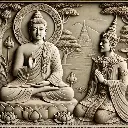
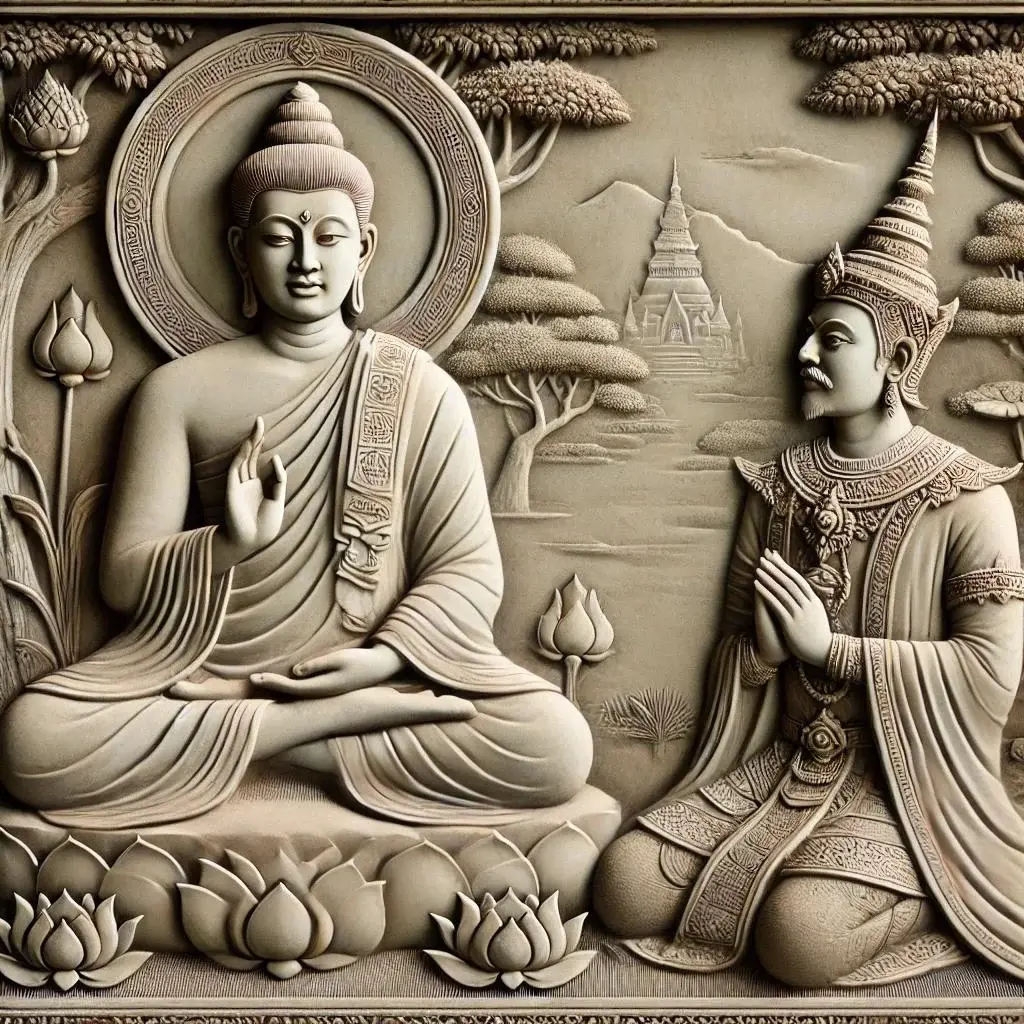
> There are few in the world, who having obtained great wealth, neither become arrogant nor negligent, do not become obsessed with sensual pleasures, and do not act wrongly towards others.
At Sāvatthi.
Once, while sitting to one side, King Pasenadi of Kosala said to the Blessed One: "Here, venerable sir, when I was alone in seclusion, a reflection arose in my mind: 'There are few beings in the world who, having obtained great wealth, neither become arrogant nor negligent, do not become obsessed with sensual pleasures, and do not act wrongly towards others. But there are far more beings in the world who, having obtained great wealth, become arrogant and even negligent, obsessed with sensual pleasures, and act wrongly towards others.'"
"That is how it is, great king, that is how it is, great king. There are indeed few beings in the world who, having obtained great wealth, neither become arrogant nor negligent, do not become obsessed with sensual pleasures, and do not act wrongly towards others. But there are far more beings in the world who, having obtained great wealth, become arrogant and even negligent, obsessed with sensual pleasures, and act wrongly towards others."
The Blessed One said this. Having spoken this, the Well-Gone One further said this:
> "Enamoured by sensual pleasures, Greedy, infatuated with desires; They do not realize they have gone too far, Like deer that enters the trap laid out; Afterwards, it becomes painful for them, For the result of their actions is bad."
------
Related Teachings:
The Fever of Sensual Pleasures (from MN 75) - Accused by a hedonist of being too negative, the Buddha recounts the luxury of his upbringing, and his realization of how little value there was in such things. Through renunciation he found a far greater pleasure.
Sensuality is subject to time, of much stress (SN 1.20) - A deity tries to persuade a monk to first enjoy sensual pleasures and then go forth.
Held by Two Kinds of Misconceptions (ITI 49) - How those with vision differ from those who adhere to craving for rebirth and those who slip past into craving to be annihilated.
-
Engaging in Debate (SnP 4.8)


In this verse, the Buddha advises Pasūra on the futility of engaging in debates and the dangers of becoming conceited.
> "Here alone is purity," they say, Denying that there is purification in other teachings; Based on what they rely on, they speak of purity, Being established in diverse individual truths.
> They who desire debate, entering an assembly, Burning fools among each other; Clinging to views dependent on others, they argue with words, Desiring praise, they are skilled in arguing.
> Engaged in debate in the midst of an assembly, Desiring praise, there arises anxiety; However, in defeat, they become despondent, Upset by criticism, they seek faults in others.
> When their argument is declared lacking, Refuted by the questioners in the assembly; One whose view is refuted laments, Thinking they have been surpassed, they feel inferior.
> These debates arise among ascetics, In these, there is both elation and dejection; Also seeing this, one should refrain from debates, For there is no purpose in obtaining praise or in gaining approval.
> One might be praised, however, there, Having declared an argument in the midst of the assembly; He laughs and becomes conceited on account of that, Having achieved what his mind desired.
> That exaltation becomes the ground for his downfall, Filled with pride, he speaks arrogantly; Seeing this too, one should not engage in debate, For the wise do not claim purity through debates.
> Just as a hero, challenged at the king's feast, Goes roaring with a desire to fight; By whatever means, hero, you should withdraw, There was no prior reason for this contest.
> Those who cling to their views and argue, Saying only "this is true" and debate it; You should tell them, "There's no point in that," For with debate arises opposition.
> However, those who have conquered the army of defilements, Acting with views that do not conflict with views; What can you gain among them, Pasūra, For they have nothing taken as supreme.
> Then you, full of thoughts, Reflecting on views in your mind; Having come together with the pure one, You indeed cannot keep up.
------
Related Teachings:
Skillfully grasping the Dhamma: The Simile of Water Snake (from MN 22) - In this teaching, the Buddha shares on learning the Dhamma by investigating its meaning with close examination, through the simile of skillfully holding a water snake.
Possessions, Respect and Popularity | Fishing Hook (SN 17.2) - Possessions, respect, and popularity are painful, severe, and obstructive to the attainment of the unsurpassed safety from the yoke (freedom from bondage).
-
Lobha sutta | Greed (ITI 1)


Thus it was said by the Blessed One, said by the Arahant, I have heard:
"Bhikkhus, abandon one thing; I am your guarantor for non-returning. What one thing? Bhikkhus, abandon greed; I am your guarantor for non-returning.
The Blessed One spoke this matter. Therefore, it is said thus:
> "When overcome by greed, beings go to a bad destination; Completely comprehending greed, those with insight abandon it; Having abandoned it, they do not come again, to this world at any time."
This matter too was spoken by the Blessed One, thus have I heard.
------
Greed is a defilement (a taint) of the mind that manifests as craving for material possessions, for consuming, for having experiences. To completely comprehend greed, one should understand the attachment, the holding on to, and clinging at the five aggregates.
Related Teachings:
Steadying the mind against the poisons of greed, hate and delusion (AN 4.117) - The Buddha's teachings when practiced become a support for the mind, allowing it to remain steady in situations that once used to shake it up.
Understanding 30 mental qualities that lead to enlightenment ↗️ - Greed, hate and delusion are the last layer of the ten layers of three mental qualities each to be uprooted to get to enlightenment. This teaching can be used to see the next layer of qualities to uproot and its antidote qualities to be cultivated.
A teaching on the Turning of the Aggregates of Clinging (SN 22.56) - The Buddha did not claim to be awakened until he had fully understood each of the five aggregates in the light of each of the four noble truths. This discourse includes definitions of each of the aggregates.
The Continuance of Consciousness (SN 12.38) - Intentions, plans or underlying tendencies become the basis for the continuance of consciousness from one life to the next.
-
A Discourse on Eating, Feelings, and Diligence (MN 70)

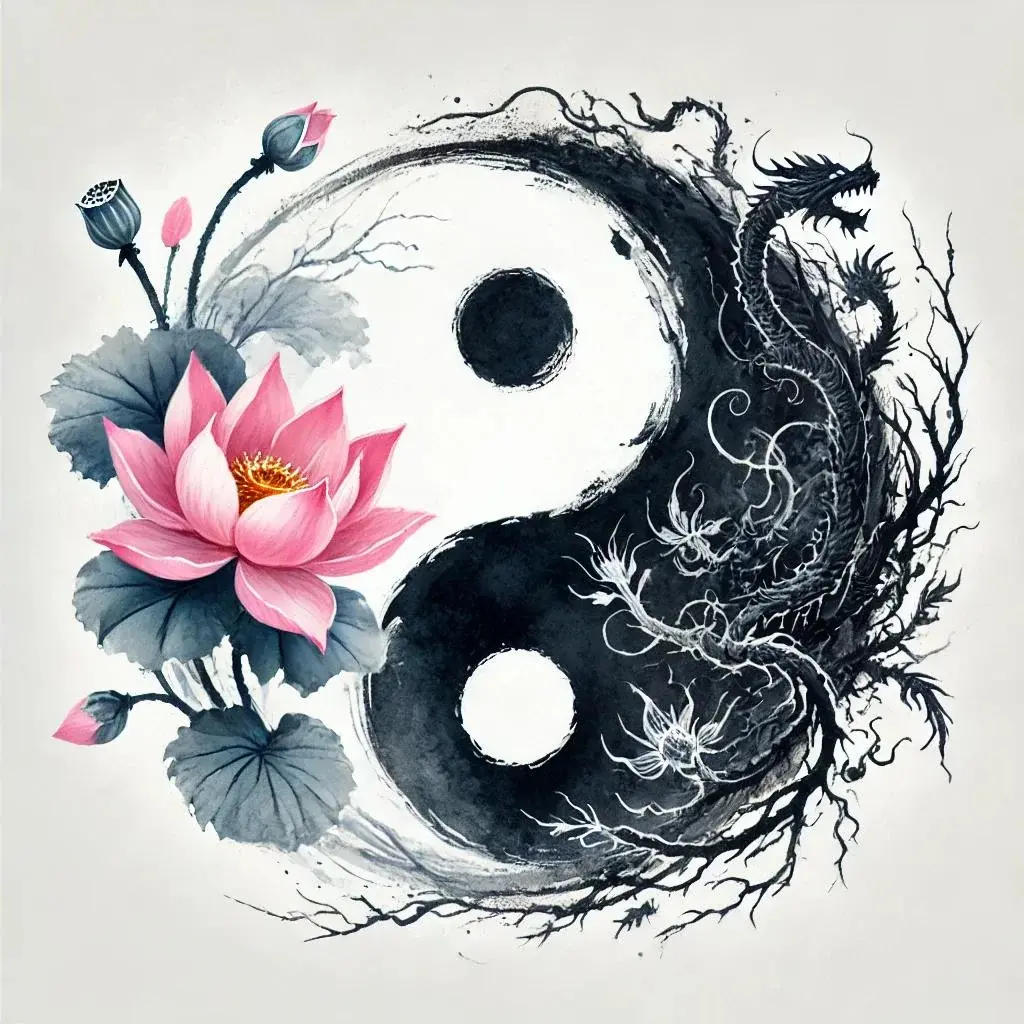
This teaching is also part of the section The Planes of Realization from "In the Buddha's Words" by Bhikkhu Bodhi.
> The Buddha starts out by advising the bhikkhus to eat only during the day, without having a meal at night, explaining the interplay of how pleasant, painful and neither-pleasant-nor-painful feelings can lead to furthering of unwholesome or wholesome states. He then shares on the seven kinds of persons and which kinds must act with diligence. The Buddha concludes by describing how final knowledge is attained gradually.
Thus have I heard - One time, the Blessed One was wandering in the Kāsī region along with a large group of bhikkhus. There, the Blessed One addressed the bhikkhus:
Not Eating At Night
"Bhikkhus, I eat only during the day, without having a meal at night. By not eating at night, I experience fewer ailments and illnesses, nimbleness, strength, and ease of living. Therefore, bhikkhus, you too should eat only during the day, without having a meal at night. By not eating at night, you will experience fewer ailments and illnesses, nimbleness, strength, and ease of living."
"Yes, venerable sir," the bhikkhus replied to the Blessed One.
Then, while wandering in stages through the Kāsī region, the Blessed One arrived at a Kāsī town of Kīṭāgiri. There, the Blessed One stayed in this Kāsī town, Kīṭāgiri.
At that time, a group of bhikkhus led by Assaji and Punabbasuka were residing at Kīṭāgiri. Then, several bhikkhus went to visit these bhikkhus and said to them: "Friends, the Blessed One eats only during the day, without having a meal at night, and the bhikkhu saṅgha does the same. By not eating at night, they experience fewer ailments and illnesses, nimbleness, strength, and ease of living. Therefore, friends, you too should eat only during the day, without having a meal at night. By doing so, you will experience fewer ailments and illnesses, nimbleness, strength, and ease of living."
When this was said, the bhikkhus led by Assaji and Punabbasuka said to those bhikkhus: "Friends, we eat in the evening, in the morning, and during the day outside of the proper time. By eating in the evening, morning, and during the day outside of the proper time, we experience fewer ailments and illnesses, nimbleness, strength, and ease of living. Why should we abandon what is evident and pursue what is uncertain? We will continue to eat in the evening, morning, and during the day outside of the proper time."
When the bhikkhus were unable to convince the bhikkhus led by Assaji and Punabbasuka, they went to the Blessed One; having approached, they paid homage to the Blessed One and sat down to one side. Sitting to one side, those bhikkhus said to the Blessed One: "Venerable sir, we went to the bhikkhus led by Assaji and Punabbasuka; having approached, we said to them: 'Friends, the Blessed One only eats during the day, without having a meal at night, and the bhikkhu saṅgha does the same; by not eating at night, they experience fewer ailments and illnesses, nimbleness, strength, and ease of living. Therefore, friends, you too should abstain from eating at night. By so doing, you too will experience fewer ailments and illnesses, nimbleness, strength, and ease of living.' When this was said, venerable sir, the bhikkhus led by Assaji and Punabbasuka said to us: 'Friends, we eat in the evening, in the morning, and during the day outside of the proper time. By eating in the evening, morning, and during the day, we experience fewer ailments and illnesses, nimbleness, strength, and ease of living. Why should we abandon what is evident and pursue what is uncertain? We will continue to eat in the evening, morning, and during the day.' Since we could not convince the bhikkhus led by Assaji and Punabbasuka, venerable sir, we have come to inform the Blessed One of this matter."
Then the Blessed One addressed a certain bhikkhu: "Come, bhikkhu, in my name, call the bhikkhus led by Assaji and Punabbasuka, saying: 'The teacher calls you, venerables.'"
"Yes, venerable sir," the bhikkhu replied. Then that bhikkhu, having answered the Blessed One, approached the bhikkhus led by Assaji and Punabbasuka; having approached them, he said, "The teacher calls you, venerables."
"Yes, friend," the bhikkhus led by Assaji and Punabbasuka replied to that bhikkhu, and they approached the Blessed One; having approached and paid homage to the Blessed One, they sat down to one side. After they sat to one side, the Blessed One said this:
"Is it true, bhikkhus, that several bhikkhus approached you and said: 'The Blessed One and the community of bhikkhus eat only during the day, without having a meal at night; by not eating at night, they experience fewer ailments, fewer illnesses, nimbleness, strength, and ease of living. Come, friends, you too should eat only during the day, without having a meal at night. By not eating at night, you too will experience fewer ailments, fewer illnesses, nimbleness, strength, and ease of living.' And when this was said, bhikkhus, did you respond to those bhikkhus: 'Friends, we eat in the evening, in the morning, and during the day outside of the proper time. By eating in the evening, morning, and during the day outside of the proper time, we experience fewer ailments, fewer illnesses, nimbleness, strength, and ease of living. Why should we abandon what is evident and pursue what is uncertain? We will continue to eat in the evening, morning, and during the day outside of the proper time.'"
"Yes, venerable sir."
Feelings and Unwholesome and Wholesome States
"Bhikkhus, do you understand me to teach the Dhamma in such a way as this: 'Whatever this person experiences, whether pleasant or painful or neither-painful-nor-pleasant, unwholesome states diminish in him and wholesome states increase'?"
"No, venerable sir."
"Surely, bhikkhus, do you understand the Dhamma as I have taught it: that in the case of some person, experiencing a pleasant feeling, unwholesome states increase and wholesome states diminish; but in the case of another person, experiencing a pleasant feeling, unwholesome states diminish and wholesome states increase. In the case of some person, experiencing a painful feeling, unwholesome states increase and wholesome states diminish; but in the case of another person, experiencing a painful feeling, unwholesome states diminish and wholesome states increase. In the case of some person, experiencing a neither-painful-nor-pleasant feeling, unwholesome states increase and wholesome states diminish; but in the case of another person, experiencing a neither-painful-nor-pleasant feeling, unwholesome states diminish and wholesome states increase?"
"Yes, venerable sir."
Pleasant Feelings
"Good, bhikkhus. And if it were unknown to me, unseen, not understood, not realized, or not contacted through wisdom thus: 'Here, for some person, experiencing such a pleasant feeling, unwholesome states increase and wholesome states diminish,' would it be appropriate for me, not knowing that, to say: 'Abandon such a pleasant feeling'?"
"No, venerable sir."
"Bhikkhus, because this has been known, seen, understood, realized, and contacted by me through wisdom: 'Here, for some person, experiencing such a pleasant feeling, unwholesome states increase and wholesome states diminish,' therefore I say, 'Abandon such a pleasant feeling.' If it had been unknown to me, unseen, not understood, not realized, or not contacted through wisdom: 'Here, for some person, experiencing such a pleasant feeling, unwholesome states diminish and wholesome states increase,' would it be appropriate for me, not knowing that, to say, 'Dwell experiencing such a pleasant feeling'?"
"No, venerable sir."
"Bhikkhus, because this has been known, seen, understood, realized, and contacted by me through wisdom: 'Here, for some person, experiencing such a pleasant feeling, unwholesome states diminish and wholesome states increase,' therefore I say, 'Dwell experiencing such a pleasant feeling.'
Painful Feelings
If it had been unknown to me, unseen, not understood, not realized, or not contacted through wisdom: 'Here, for some person, experiencing such a painful feeling, unwholesome states increase and wholesome states diminish,' would it be appropriate for me, not knowing that, to say, 'Abandon such a painful feeling'?""
"No, venerable sir."
"Bhikkhus, because this has been known, seen, understood, realized, and contacted by me through wisdom: 'Here, for some person, experiencing such a painful feeling, unwholesome states increase and wholesome states diminish,' therefore I say, 'Abandon such a painful feeling.' If it had been unknown to me, unseen, not understood, not realized, or not contacted through wisdom: 'Here, for some person, experiencing such a painful feeling, unwholesome states diminish and wholesome states increase,' would it be appropriate for me, not knowing that, to say, 'Dwell experiencing such a painful feeling'?"
"No, venerable sir."
"Bhikkhus, because this has been known, seen, understood, realized, and contacted by me through wisdom: 'Here, for some person, experiencing such a painful feeling, unwholesome states diminish and wholesome states increase,' therefore I say, 'Dwell experiencing such a painful feeling.'
Neither-Painful-Nor-Pleasant Feelings
If it had been unknown to me, unseen, not understood, not realized, or not contacted through wisdom: 'Here, for some person, experiencing such a neither-painful-nor-pleasant feeling, unwholesome states increase and wholesome states diminish,' would it be appropriate for me, not knowing that, to say, 'Abandon such a neither-painful-nor-pleasant feeling'?”
"No, venerable sir."
"Bhikkhus, because this has been known, seen, understood, realized, and contacted by me through wisdom: 'Here, for some person, experiencing such a neither-painful-nor-pleasant feeling, unwholesome states increase and wholesome states diminish,' therefore I say, 'Abandon such a neither-painful-nor-pleasant feeling.' If it had been unknown to me, unseen, not understood, not realized, or not contacted through wisdom: 'Here, for some person, experiencing such a neither-painful-nor-pleasant feeling, unwholesome states diminish and wholesome states increase,' would it be appropriate for me, not knowing that, to say, 'Dwell experiencing such a neither-painful-nor-pleasant feeling'?"
"No, venerable sir."
"Bhikkhus, because this has been known, seen, understood, realized, and contacted by me through wisdom: 'Here, for some person, experiencing such a neither-painful-nor-pleasant feeling, unwholesome states diminish and wholesome states increase,' therefore I say, 'Dwell experiencing such a neither-painful-nor-pleasant feeling.'
Bhikkhus, I do not say to all bhikkhus, 'You must act with diligence'; nor do I say to all bhikkhus, 'You must not act with diligence.' Bhikkhus, those bhikkhus who are arahants, whose taints are exhausted, who have lived the spiritual life, done what had to be done, laid down the burden, reached the true goal, exhausted the fetters of existence, and are completely liberated through final knowledge, I do not say to such bhikkhus, 'You must act with diligence.' Why is that? Because their diligence has been accomplished. They are incapable of negligence.
But, bhikkhus, those bhikkhus who are trainees, not yet attained to their goal, but who are striving for the unsurpassed safety from bondage, to such bhikkhus I say, 'You must act with diligence.' Why is that? Because, bhikkhus, it is possible that by resorting to appropriate dwelling places, associating with good friends, and balancing their faculties, those venerable ones might realize here and now the highest culmination of the spiritual life for which clansmen rightly go forth from the household life into homelessness, and having realized it with their own direct knowledge, they might dwell in it. Seeing the fruit of diligence for these bhikkhus, I say, 'You must act with diligence.'"
Seven Kinds of Persons
"Bhikkhus, there are seven kinds of persons to be found existing in the world. What seven? They are: one liberated both ways, one liberated by wisdom, a body-witness, one attained through view, one attained through confidence, a Dhamma-follower, and a faith-follower.
1. Liberated Both Ways
Bhikkhus, what kind of a person is one liberated both ways? Here, bhikkhus, a certain person contacts with the body and dwells in those liberations that are peaceful and formless, surpassing forms, and by having seen with wisdom, his taints are exhausted. This kind of a person is called one liberated both ways. For such a bhikkhu, I do not say, 'You must act with diligence.' Why is that? Because his diligence has been accomplished. He is incapable of negligence.
2. Liberated by Wisdom
Bhikkhus, what kind of person is one liberated by wisdom? Here, bhikkhus, a certain person does not contact with the body and dwell in those liberations that are peaceful and formless, surpassing forms; however, having seen with wisdom, his taints are exhausted. This person is called one liberated by wisdom. For this bhikkhu too, I do not say, 'You must act with diligence.' Why is that? Because his diligence has been accomplished. He is incapable of negligence.
3. Body-Witness
Bhikkhus, what kind of person is a body-witness? Here, bhikkhus, a certain person contacts with the body and dwells in those liberations that are peaceful and formless, surpassing forms, and by having seen with wisdom, some of his taints are exhausted. This person is called a body-witness. For this bhikkhu, I say, 'You must act with diligence.' Why is that? Because it is possible that this venerable one, by resorting to appropriate dwelling places, associating with good friends, and balancing his faculties, might realize here and now the highest culmination of the spiritual life for which clansmen rightly go forth from the household life into homelessness, and having realized it with his own direct knowledge, he might dwell in it. Seeing the fruit of diligence for this bhikkhu, I say, 'You must act with diligence.'"
4. Attained Through View
Bhikkhus, what kind of person is one attained through view? Here, bhikkhus, a certain person does not contact with the body and dwell in those liberations that are peaceful and formless, surpassing forms, but by having seen with wisdom, some of his taints are exhausted, and the teachings proclaimed by the Tathāgata are understood and practiced by him with wisdom. This person is called one attained through view. For this bhikkhu too, I say, 'You must act with diligence.' Why is that? Because it is possible that this venerable one, by resorting to appropriate dwelling places, associating with good friends, and balancing his faculties, might realize here and now the highest culmination of the spiritual life for which clansmen rightly go forth from the household life into homelessness, and having realized it with his own direct knowledge, he might dwell in it. Seeing the fruit of diligence for this bhikkhu, I say, 'You must act with diligence.'
5. Attained Through Confidence
Bhikkhus, what kind of person is one attained through confidence? Here, bhikkhus, a certain person does not contact with the body and dwell in those liberations that are peaceful and formless, surpassing forms, but by having seen with wisdom, some of his taints are exhausted, and his confidence in the Tathāgata is deeply rooted and well-established. This person is called one attained through confidence. For this bhikkhu too, I say, 'You must act with diligence.' Why is that? Because it is possible that this venerable one, by resorting to appropriate dwelling places, associating with good friends, and balancing his faculties, might realize here and now the highest culmination of the spiritual life for which clansmen rightly go forth from the household life into homelessness, and having realized it with his own direct knowledge, he might dwell in it. Seeing the fruit of diligence for this bhikkhu, I say, 'You must act with diligence.'
6. A Dhamma-Follower
Bhikkhus, what kind of person is a Dhamma-follower? Here, bhikkhus, a certain person does not contact with the body and dwell in those liberations that are peaceful and formless, surpassing forms, but by having seen with wisdom, some of his taints are exhausted, and the teachings proclaimed by the Tathāgata are understood and practiced by him with wisdom to some extent. Moreover, he possesses the faculties of confidence, persistence (energy), mindfulness, collectedness, and wisdom. This person is called a Dhamma-follower. For this bhikkhu too, I say, 'You must act with diligence.' Why is that? Because it is possible that this venerable one, by resorting to appropriate dwelling places, associating with good friends, and balancing his faculties, might realize here and now the highest culmination of the spiritual life for which clansmen rightly go forth from the household life into homelessness, and having realized it with his own direct knowledge, he might dwell in it. Seeing the fruit of diligence for this bhikkhu, I say, 'You must act with diligence.'
7. A Faith-Follower
Bhikkhus, what kind of person is a faith-follower? Here, bhikkhus, a certain person does not contact with the body and dwell in those liberations that are peaceful and formless, surpassing forms. Having seen with wisdom, his taints are not yet exhausted, and he has mere faith and love for the Tathāgata. Moreover, he possesses the faculties of confidence, persistence, mindfulness, collectedness, and wisdom. This person is called a faith-follower. For this bhikkhu too, I say, 'You must act with diligence.' Why is that? Because it is possible that this venerable one, by resorting to appropriate dwelling places, associating with good friends, and balancing his faculties, might realize here and now the highest culmination of the spiritual life for which clansmen rightly go forth from the household life into homelessness, and having realized it with his own direct knowledge, he might dwell in it. Seeing the fruit of diligence for this bhikkhu, I say, 'You must act with diligence.'
Final Knowledge Is Attained Gradually
Bhikkhus, I do not say that final knowledge is attained immediately at the first attempt. However, bhikkhus, it is through gradual training, gradual practice, and gradual progress that final knowledge is attained.
And how, bhikkhus, is final knowledge attained through gradual training, gradual practice, and gradual progress? Here, bhikkhus, someone who has faith approaches [a teacher]; having approached, he attends on [the teacher]; attending on him, he lends ear; having lent ear, he hears the Dhamma; having heard the Dhamma, he remembers (memorizes) it; he examines the meaning of the teachings he has remembered; when he examines their meaning, he gains a reflective acceptance of those teachings; when he has gained reflective acceptance of those teachings, aspiration (interest/desire/zeal) springs up in him; when aspiration has sprung up, he applies his will; having applied his will, he scrutinizes; having scrutinized, he strives; resolutely striving, he realizes with the body the ultimate truth and sees it by penetrating it with wisdom.
There has not been that faith, bhikkhus, and there has not been that approaching, and there has not been that attending, and there has not been that lending ear, and there has not been that hearing of the Dhamma, and there has not been that remembering of the Dhamma, and there has not been that examination of the meaning, and there has not been that reflective acceptance of the teachings, and there has not been that aspiration, and there has not been that application of will, and there has not been that scrutiny, and there has not been that striving. Bhikkhus, you have lost your way; bhikkhus, you have been practising the wrong way. Just how far, bhikkhus, have these misguided men strayed from this teaching and training.
Bhikkhus, there is a four-phrased statement, and when it is understood, a wise person would quickly comprehend its meaning. Shall I declare it to you, bhikkhus, so you can understand it?"
"And who are we, venerable sir, that we should understand the Dhamma?"
"Bhikkhus, even with a teacher who is concerned with worldly things, inheritor of worldly things, involved with worldly things, such haggling by his disciples would not be proper: 'If it were like this for us, then we would do it; if it were not like this for us, then we would not do it'; how much more so when the teacher is the Tathāgata, who dwells completely detached from worldly things?
"Bhikkhus, for a faithful disciple who is intent on deeply penetrating the Teacher's teaching, it is natural that he conduct himself thus: 'The Blessed One is the Teacher, I am a disciple; the Blessed One knows, I do not know.' For a faithful disciple who is intent on deeply penetrating the Teacher's teaching, the Teacher's instruction becomes nourishing and is suitable for growth. Furthermore, for a faithful disciple who is intent on deeply penetrating the Teacher's teaching, it is natural that he conduct himself thus: 'Even if my skin, sinews, and bones remain, and my flesh and blood dry up, I will not let the energy for striving stop until I have attained what can be attained by human strength, human energy, and human persistence.' Bhikkhus, for a faithful disciple who is intent on deeply penetrating the Teacher's teaching, one of two fruits is to be expected: either final knowledge in this very life or, if there is a trace of clinging left, the state of non-returning.
The Blessed One said this. The bhikkhus, satisfied, rejoiced in the Blessed One's words.
------
An enlightened being having been liberated from clinging at the five aggregates wouldn't insist on a perception or a view to be adopted by others. An enlightened being would also not be interested in disparaging or slandering someone who may have different or opposing views, for they would have eliminated the fetter of ill-will through cultivation of good-will. How much more so for one who is perfectly enlightened. This teaching offers a window into the Buddha's practice of these finer aspects.
Related Teachings:
Steps toward the Realization of Truth (MN 95) ↗️ - Here, the Buddha shares the key aspects of how one awakens to the truth by preserving it first, and how one then arrives at the truth through a consistent life practise of the truth that one has awakened to.
Entering the Fixed Course of Rightness (SN 25.1) - A person who either has faith and conviction in the Buddha's teachings (established through having independently verified them) or has cultivated a partial degree of wisdom through independent verification (but hasn't cultivated reflective wisdom) will not die without having realized the fruit of stream-entry.
A Bucket of Rice (SN 3.13) - In what is probably the world’s first recorded weight loss diet, when king Pasenadi shows up overweight and out of breath, the Buddha advises him to cut down his eating. The king asks an attendant to memorize the advise and recite it to him whenever he is eating.
-
Burns away all fetters (DhP 31)

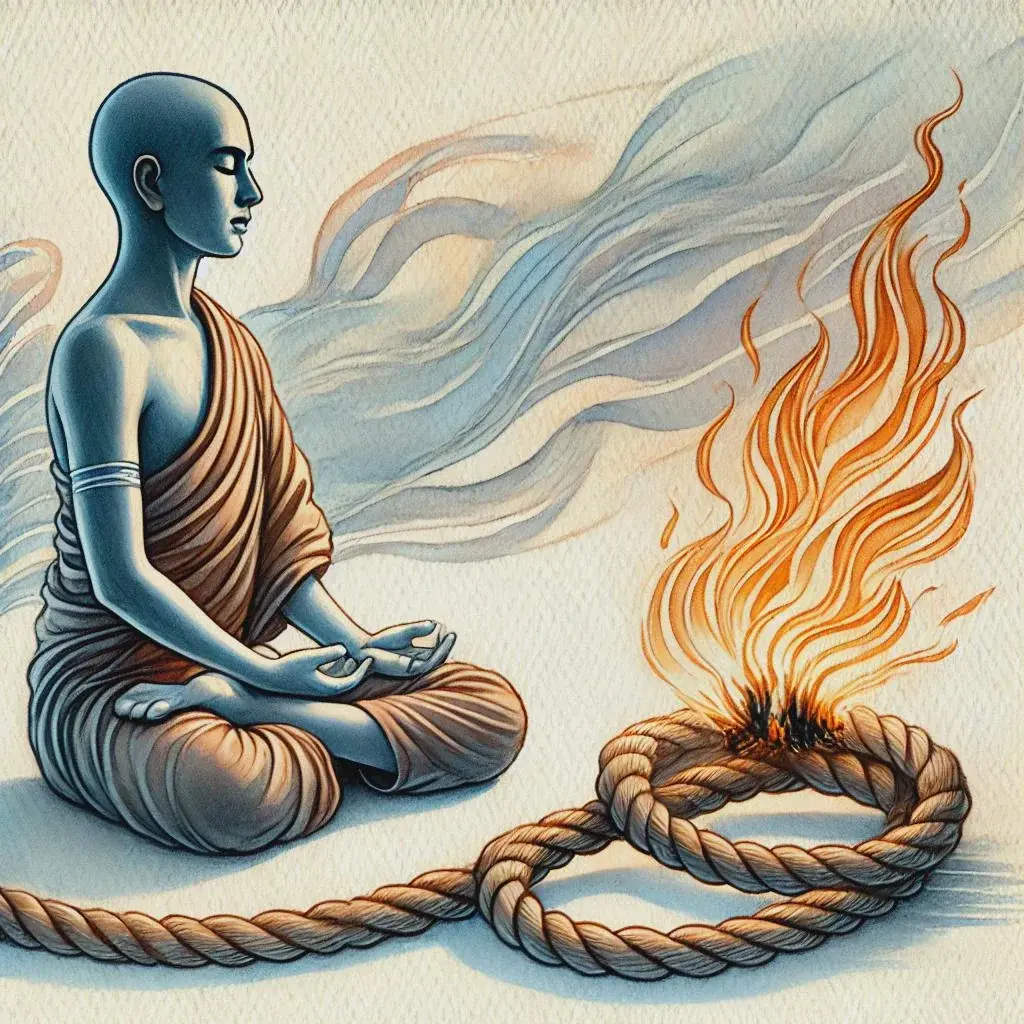
A bhikkhu who is devoted to heedfulness, who sees danger in heedlessness; Burns away all fetters, both subtle and gross, like a blazing fire that consumes everything.
-- DhammaPada Verse 31
------
Related Teachings:
Teachings on the harmful and beneficial qualities (AN) ↗️ - In this teaching on contrasting pairs, the Buddha shares that harmful qualities when pursued, lead to one's decline in morality, generosity, faith, concentration, and wisdom.
Who is the Dhamma for | Eight thoughts of a great person (AN 8.30) ↗️ - This teaching shares eight qualities of a great person, which leads them to the realization of the fruit of Dhamma, enlightenment, Nibbāna.
-
On Not Seeing Form And The Other Aggregates (SN 33.6 - 33.10)

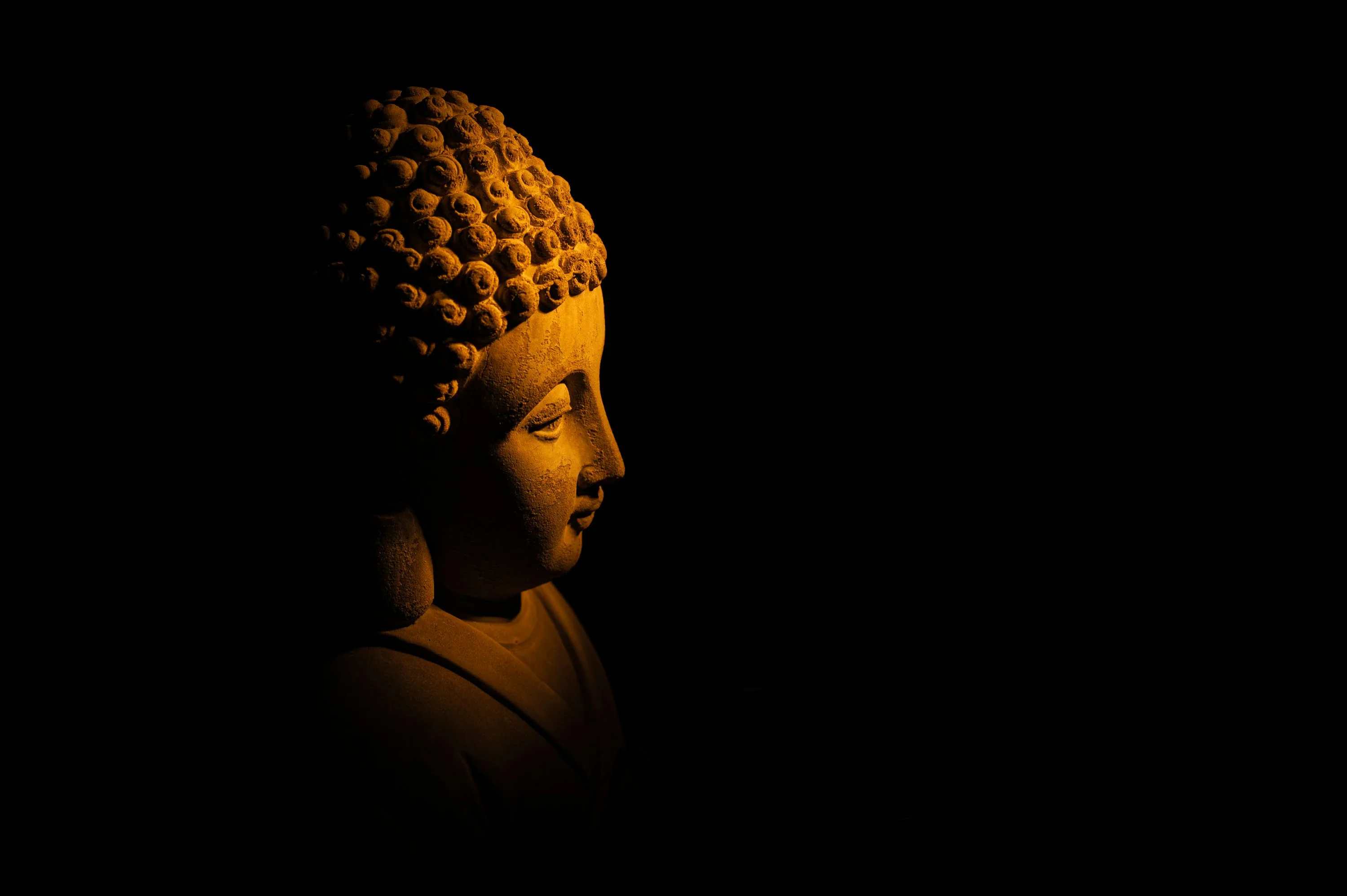
At Sāvatthi.
While seated to one side, the wanderer Vacchagotta addressed the Blessed One:
"Venerable Gotama, what is the cause and condition for the various kinds of views that arise in the world, such as: 'The world is eternal,' or 'The world is not eternal,' ... or 'After death a Tathāgata neither exists nor does not exist'?"
"Vaccha, it is from not seeing form, not seeing the arising of form, not seeing the cessation of form, not seeing the practice leading to the cessation of form that these various kinds of views arise in the world, such as: 'The world is eternal,' ... or 'After death a Tathāgata neither exists nor does not exist.'
It is from not seeing feeling, not seeing the arising of feeling, not seeing the cessation of feeling, not seeing the practice leading to the cessation of feeling.
It is from not seeing perception, not seeing the arising of perception, not seeing the cessation of perception, not seeing the practice leading to the cessation of perception.
It is from not seeing volitional formations, not seeing the arising of volitional formations, not seeing the cessation of volitional formations, not seeing the practice leading to the cessation of volitional formations.
It is from not seeing consciousness, not seeing the arising of consciousness, not seeing the cessation of consciousness, not seeing the practice leading to the cessation of consciousness that these various kinds of views arise in the world, such as: 'The world is eternal,' ... or 'After death a Tathāgata neither exists nor does not exist.'"
------
The Buddha is sharing that various views about the world and self are a result of not fully knowing the five aggregates, not seeing their arising, not seeing their cessation, and from not seeing the practice leading to their cessation.
Related Teachings:
Navigating through 30 mental qualities that lead to enlightenment, to the arising of the Buddha (AN 10.76) - The Buddha lays down 30 different mental qualities in ten sets of threes that lead all the way to enlightenment. He explains them both backwards and forwards. One can use this teaching to draw out a skill map of which qualities they've cultivated and which ones are next to cultivate.
Gradual Training, Gradual Practice, and Gradual Progress (MN 107) - The gradual training guideline teaching of the Buddha is how a student starting out in the teachings of the Buddha should gradually practice in to see gradual progress - all the way to seeing the arising and cessation of the five aggregates.
A Lump of Foam | A series a similes for reflecting on the five aggregates (SN 22.95) - The Buddha presents a series of similes for the aggregates: physical form is akin to a lump of foam, feelings akin to water bubbles, perception like a mirage, choices are like a tree without a core, and consciousness is similar to a magic show.
-
Families that dwell with Brahmā (God) (AN 3.31)


> Where children honor their parents, those families are said to dwell with Brahmā.
"Bhikkhus, those families are said to dwell with Brahmā (God) where at home the children honor their mother and father. Bhikkhus, those families are said to dwell with first teachers where at home the children honor their mother and father. Bhikkhus, those families are said to dwell with those worthy of offerings where at home, the children honor their mother and father.
Bhikkhus, 'Brahmā' is a designation for mother and father.
'First teachers' is a designation for mother and father.
'Worthy of offerings' is a designation for mother and father.
Why is that? Bhikkhus, mother and father are of great help to their children, for they are protectors, nurturers, and guides of this world.
> Mother and father are said to be Brahmā, and first teachers; They are also called worthy of offerings, for they're concerned for their children.
> Therefore, one should honor them, and a wise person should respect them; With food and drink, with clothing and bedding; By massaging and by bathing, and by washing their feet.
> Because of such service, towards one's mother and father; Right here, wise people praise him, and after death, he rejoices in heaven."
------
Related Teachings:
Four Bases of Supportive Relationships (AN 4.32) - Giving, kind speech, beneficial action and impartiality are the four bases of supportive relationships.
The way to look after yourself and others | At Sedaka (SN 47.19) - Two acrobats discuss whether one should support the other, or the other way around. The Buddha says they should support each other. In the same way we should practice the four kinds of mindfulness meditation both for one’s own benefit and to protect others.
-
Drop the World's Bait | Time Flies By (SN 1.4)


At Sāvatthi.
While standing to one side, that deity spoke this verse in the presence of the Blessed One:
> "Time flies by, the nights swiftly pass, The stages of life gradually abandon (us); Clearly seeing this danger in death, One should do meritorious deeds that bring happiness."
The Blessed One:
> "Time flies by, the nights swiftly pass, The stages of life gradually abandon (us); Clearly seeing this danger in death, One should drop the world's bait, looking for peace."
------
World's bait is a reference to pursuit of worldly pleasures, material wealth, fame and status, power and control, relationships and attachments, idle activities, mental indulgences.
Related Teachings:
Dhamma Exposition on Sensual Pleasures, Feelings, Perceptions, Taints, Actions, Suffering (AN 6.63) - This teaching provides a detailed analysis on the central themes of Sensual Pleasures, Feelings, Perceptions, Taints, Actions (kamma), Suffering (dukkha).
Causes for Diverse Perceptions, Intentions, Passions, Quests (SN 14.7) - The diverse external elements of sense experience give rise to diverse perceptions, intentions, desires, passions, and quests.
-
Anything outside 5 Aggregates?
Question, Does anything exist outside the 5 Skandas? Do the 5 skandas operate on some sort of background or just exist off each other?
-
Why is he called the Tathagata (ITI 112)

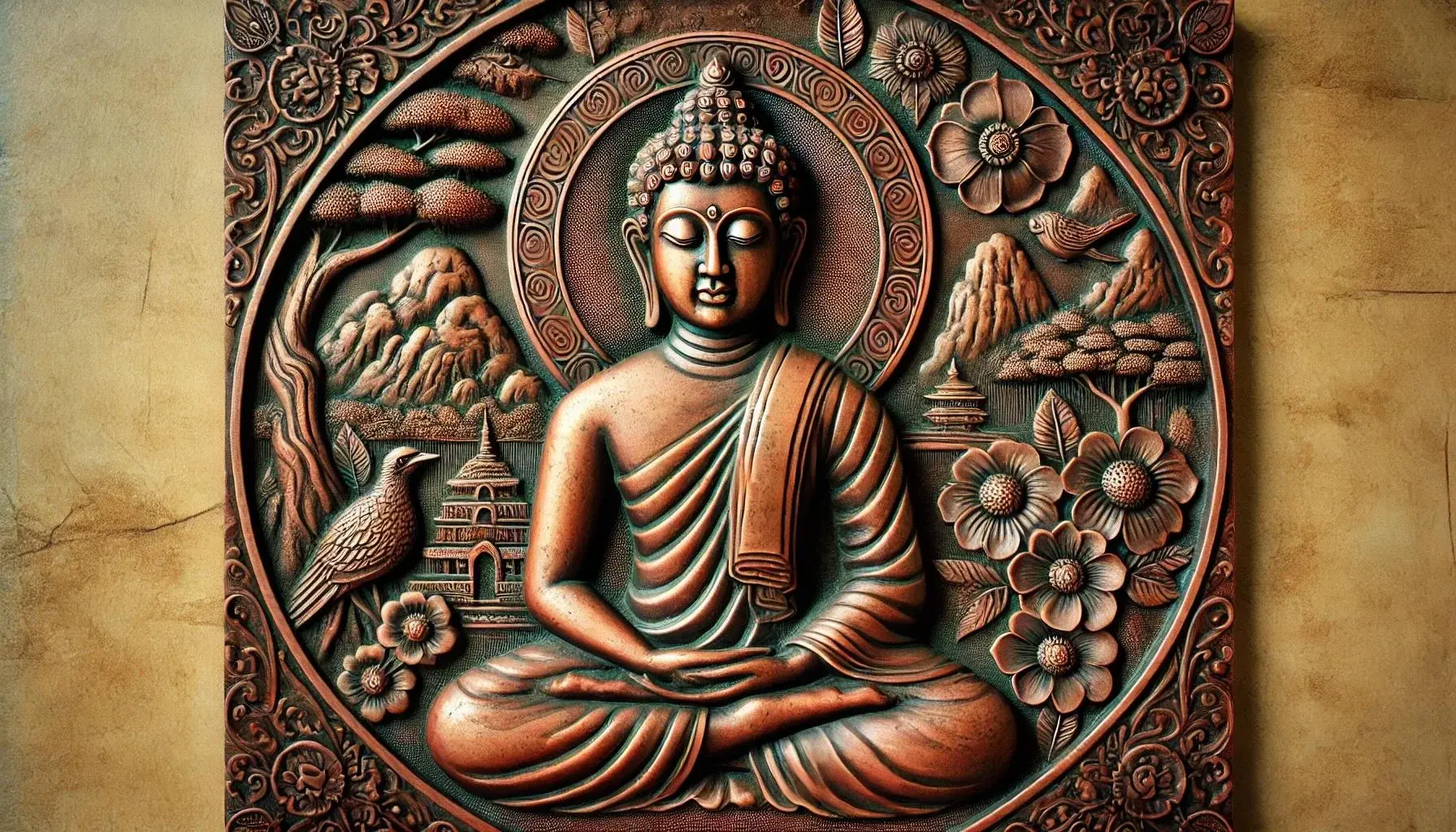
This teaching is from the section The Planes of Realization of "In the Buddha's Words" by Bhikkhu Bodhi.
The Buddha explains why he is called the Tathāgata, the one who has fully comprehended the world, its arising, cessation, and the path leading to its cessation.
Thus it was said by the Blessed One, said by the Worthy One, as I heard:
"Bhikkhus, the world has been fully comprehended by the Tathāgata, the Tathāgata is detached from the world. Bhikkhus, the arising of the world has been fully comprehended by the Tathāgata, the arising of the world has been abandoned by the Tathāgata. Bhikkhus, the cessation of the world has been fully comprehended by the Tathāgata, the cessation of the world has been realized by the Tathāgata. Bhikkhus, the path leading to the cessation of the world has been fully comprehended by the Tathāgata, the path leading to the cessation of the world has been developed by the Tathāgata.
Bhikkhus, whatever is seen, heard, perceived, cognized, attained, sought for, or reflected on by the mind in the world with its deities, Māra, Brahmā, ascetics, and brahmins, including gods and humans, all that has been fully comprehended by the Tathāgata. Therefore, he is called the Tathāgata.
And bhikkhus, whatever the Tathāgata speaks, talks, or declares during the interval between the night he awakens to unsurpassed perfect enlightenment and the night he attains final Nibbāna in the element of Nibbāna without a remainder of clinging, all that is just so and not otherwise. Therefore, he is called the Tathāgata.
Bhikkhus, as he speaks, so he acts; as he acts, so he speaks. Therefore, one whose words match his actions and whose actions match his words is called the Tathāgata.
Bhikkhus, in the world with its deities, Māra, Brahmā, ascetics, and brahmins, including gods and humans, the Tathāgata is unsurpassed, unconquered, one who sees things as they are, and wielding power. Therefore, he is called the Tathāgata."
The Blessed One spoke thus, it is said:
"Having fully known the whole world, as it truly is; Disentangled from the whole world, and without engagement.
He is the unsurpassed of all, the wise one, liberated from all bonds; Having reached the supreme peace: Nibbāna, without fear from any quarter.
He is the Buddha, with defilements ended, untroubled and free from doubts; Having reached the exhaustion of all exertions, he is freed with the ending of all attachments.
This one, the Blessed One, the Buddha, the unsurpassed lion; In the world with its deities, sets in motion the wheel of Dhamma.
Thus, gods and humans, who have gone to the Buddha for refuge; Having come together, honor that great one free from fear.
Tamed, he is the best of those who tame; calm, he is the sage of those who calm; Freed, he is the foremost of those who free; crossed over, he is the best of those who cross over.
Thus they honor this great one free from fear; In the world with its deities, there is none your equal."
This matter too was spoken by the Blessed One, thus have I heard.
------
Related Teachings:
The Buddha and the Arahant (SN 22.58) - The Buddha shares the similarities and differences between him and another liberated by wisdom.
For the welfare of the many (ITI 84) - A mixed prose and verse teaching on three people who appear for the benefit of the world.
-
Good Friendship Precedes the Noble Eightfold Path (SN 45.49)


"Bhikkhus, just as the dawn precedes and predicts the rising of the sun, so too does good friendship precede and predict the arising of the noble eightfold path for a bhikkhu. For a bhikkhu with good friends, it is expected that he will develop and extensively cultivate the noble eightfold path.
How, bhikkhus, does a bhikkhu with good friends develop and cultivate the noble eightfold path?
-
Here, bhikkhus, a bhikkhu develops right view supported by seclusion, dispassion, cessation, and leading to complete relinquishment
-
He develops right intention supported by seclusion, dispassion, cessation, and leading to complete relinquishment
-
He develops right speech supported by seclusion, dispassion, cessation, and leading to complete relinquishment
-
He develops right action supported by seclusion, dispassion, cessation, and leading to complete relinquishment
-
He develops right livelihood supported by seclusion, dispassion, cessation, and leading to complete relinquishment
-
He develops right effort supported by seclusion, dispassion, cessation, and leading to complete relinquishment
-
He develops right mindfulness supported by seclusion, dispassion, cessation, and leading to complete relinquishment
-
He develops right collectedness supported by seclusion, dispassion, cessation, and leading to complete relinquishment.
Thus indeed, bhikkhus, a bhikkhu with good friends develops and extensively cultivates the noble eightfold path."
-------
Related Teachings:
Teachings on the harmful and beneficial qualities (AN) ↗️ - In this teaching on contrasting pairs, the Buddha shares that harmful qualities when pursued, lead to one's decline in morality, generosity, faith, concentration, and wisdom.
The effects of cultivating the eightfold path are gradual (DhP 273)
-
-
Rolling Forth The Wheel of The Dhamma (SN 56.11)

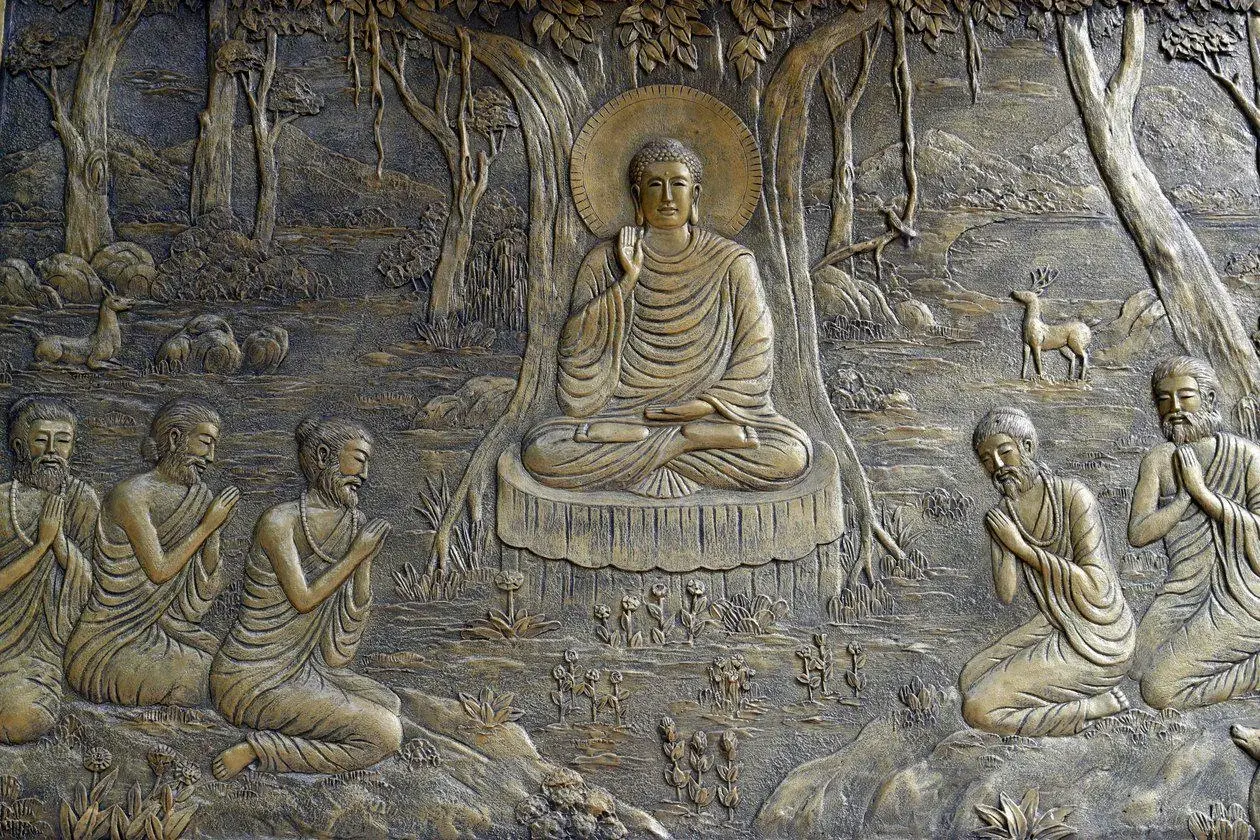
> The first discourse the Buddha taught at Varanasi to the group of five ascetics. It begins by rejecting the extremes of asceticism and indulgence and recommends the middle way of the eightfold path. Then it defines the four noble truths and analyzes them in twelve aspects. It ends with Venerable Kondañña becoming the first person apart from the Buddha to realize the Dhamma.
Once, the Blessed One was staying in the Deer Park at Isipatana near Varanasi. There, the Blessed One addressed the group of five bhikkhus:
"Bhikkhus, two extremes should not be followed by one who has gone forth. Which two? That which is pursuit of sensual happiness in sensual pleasures, which is low, vulgar, common, ignoble, and unbeneficial; and that which is pursuit of self-mortification, which is painful, ignoble, and unbeneficial. Avoiding both these extremes, bhikkhus, the Tathāgata has awakened to the Middle Way, which gives rise to vision, gives rise to knowledge, leads to peace, to direct knowledge, to enlightenment, to Nibbāna.
And what, bhikkhus, is the Middle Way awakened to by the Tathāgata, which gives rise to vision, gives rise to knowledge, leads to peace, to direct knowledge, to enlightenment, to Nibbāna? It is this Noble Eightfold Path, namely: right view, right intention, right speech, right action, right livelihood, right effort, right mindfulness, right collectedness. This, bhikkhus, is the Middle Way awakened to by the Tathāgata, which gives rise to vision, gives rise to knowledge, leads to peace, to direct knowledge, to enlightenment, to Nibbāna.
This, bhikkhus, is the noble truth of suffering (discontentment, stress): birth is suffering, aging is suffering, sickness is suffering, death is suffering; association with the unpleasant is suffering, separation from the pleasant is suffering, not getting what one desires is suffering — in summary, the five aggregates subject to clinging are suffering.
This, bhikkhus, is the noble truth of the arising of suffering: it is this craving which leads to rebirth, accompanied by delight and lust, finding delight here and there; namely, craving for sensual pleasures, craving for existence, craving for non-existence.
This, bhikkhus, is the noble truth of the cessation of suffering: it is the remainderless fading and cessation of that same craving, the forsaking and relinquishing of it, freedom from it, absence of reliance on it.
This, bhikkhus, is the noble truth of the way leading to the cessation of suffering: it is this Noble Eightfold Path; namely: right view, right intention, right speech, right action, right livelihood, right effort, right mindfulness, right collectedness.
'In regards to the noble truth of suffering', bhikkhus, vision, knowledge, wisdom, true knowledge, and light arose in me (about things not heard before). 'This noble truth of suffering should be fully comprehended', vision, knowledge, wisdom, true knowledge, and light arose in me. 'This noble truth of suffering has been fully comprehended', vision, knowledge, wisdom, true knowledge, and light arose in me.
'In regards to the noble truth of the arising of suffering', vision, knowledge, wisdom, true knowledge, and light arose in me (about things not heard before). 'This noble truth of the arising of suffering should be abandoned', vision, knowledge, wisdom, true knowledge, and light arose in me. 'This noble truth of the arising of suffering has been abandoned', vision, knowledge, wisdom, true knowledge, and light arose in me.
'In regards to this noble truth of the cessation of suffering', vision, knowledge, wisdom, true knowledge, and light arose in me (about things not heard before). 'This noble truth of the cessation of suffering should be realized', vision, knowledge, wisdom, true knowledge, and light arose in me. 'This noble truth of the cessation of suffering has been realized', vision, knowledge, wisdom, true knowledge, and light arose in me.
'In regards to this noble truth of the path leading to the cessation of suffering', vision, knowledge, wisdom, true knowledge, and light arose in me (about things not heard before). 'This noble truth of the path leading to the cessation of suffering should be developed', vision, knowledge, wisdom, true knowledge, and light arose in me. 'This noble truth of the path leading to the cessation of suffering has been developed', vision, knowledge, wisdom, true knowledge, and light arose in me.
As long as my knowledge and vision regarding these Four Noble Truths in their three phases and twelve aspects was not fully purified, I did not claim to have achieved the unsurpassed perfect enlightenment in this world with its devas, Māra, Brahmā, with its ascetics and brahmins, its devas and humans.
But when my knowledge and vision regarding these four noble truths in their three phases and twelve aspects was fully purified, then I claimed to have achieved the unsurpassed perfect enlightenment in this world with its deities (devas), Māra, Brahmā (God), with its ascetics and brahmins, its gods and humans.
And knowledge and vision arose in me: 'Unshakeable is my liberation, this is my last birth, there is no more rebirth for me.'"
This the Blessed One said. Satisfied, the group of five bhikkhus rejoiced in what the Blessed One had said.
Moreover, while this exposition was being given, the venerable Kondañña's mind was freed from the taints through the absence of clinging: "Whatever arises is subject to cessation."
When the Blessed One had set the Wheel of Dhamma in motion, the earth-bound devas proclaimed: "At Varanasi, in the Deer Park at Isipatana, the Unsurpassed Wheel of Dhamma has been set in motion by the Blessed One, not to be halted by any ascetic, brahmin, deva, Māra, Brahmā, or anyone in the world."
Hearing the earth-bound deities, the deities of the Four Great Kings… the Tāvatiṁsa deities… the Yāma deities… the Tusita deities… the Nimmānaratī deities… the Paranimmitavasavattī deities… the Brahmās joined in: "At Varanasi, in the Deer Park at Isipatana, the Unsurpassed Wheel of Dhamma has been set in motion by the Blessed One, not to be halted by any ascetic, brahmin, deity, Māra, Brahmā (God), or anyone in the world."
Thus, at that moment, that instant, that second, the cry reached as far as the Brahmā world, and this ten-thousandfold universe shook, quaked, and trembled, and a boundless, splendid radiance surpassed the divine majesty of the devas.
Then the Blessed One declared: "Truly, Kondañña has realized! Truly, Kondañña has realized!"
Thus, Venerable Kondañña became known as "Añña Kondañña—Kondañña Who Has Realized."
--------
It is said that the Buddha taught the discourse to the five ascetics and rolled forth the wheel of Dhamma on this full moon eve.
Picture Credit: Tinh Xa Ngoc Chau Buddhist temple, The Life of the Buddha, Siddhartha Gautama, The Buddha preached His first sermon to the five monks at the Deer Park in Varanasi, Chau Doc, Vietnam
A handful of leaves 🍃 - Essential Teachings of the Buddha to Understanding The Four Noble Truths
-
Greater Discourse With Vaccha (MN 73)


This teaching is from the section The Planes of Realization of "In the Buddha's Words" by Bhikkhu Bodhi.
> The Buddha describes the wholesome and unwholesome states to the wanderer Vacchagotta, and then answers Vacchagotta's questions about the accomplishments of his disciples.
Thus have I heard - At one time, the Blessed One was residing in Rājagaha, at the Bamboo Grove, the Squirrel Sanctuary.
Then, the wanderer Vacchagotta approached the Blessed One. Having approached, he exchanged courteous greetings with the Blessed One, and after this friendly exchange, he sat down to one side. As he was seated to one side, the wanderer Vacchagotta said to the Blessed One: "For a long time, I have been a companion in discussion with venerable Gotama. It would be good if Venerable Gotama would teach me briefly about wholesome and unwholesome states."
Wholesome and Unwholesome States
"Vaccha, I can teach you about wholesome and unwholesome states briefly or in detail. Still, let me do so in brief. Listen and pay close attention, and I will speak."
"Yes, Venerable sir," the wanderer Vacchagotta replied to the Blessed One. The Blessed One said this:
"Greed (lust, desire, attachment), Vaccha, is unwholesome; non-greed is wholesome. Aversion (ill-will, hatred, resentment), Vaccha, is unwholesome; good-will (friendliness, loving-kindness) is wholesome. Delusion (assumption making tendencies, absence of close examination and verification), Vaccha, is unwholesome; non-delusion is wholesome. Thus, Vaccha, these three qualities are unwholesome, and these three qualities are wholesome.
-
Killing living beings, Vaccha, is unwholesome;abstaining from killing living beings is wholesome.
-
Taking what is not given, Vaccha, is unwholesome; abstaining from taking what is not given is wholesome.
-
Sexual misconduct, Vaccha, is unwholesome; abstaining from sexual misconduct is wholesome.
-
False speech, Vaccha, is unwholesome; abstaining from false speech is wholesome.
-
Malicious speech, Vaccha, is unwholesome; abstaining from malicious speech is wholesome.
-
Harsh speech, Vaccha, is unwholesome; abstaining from harsh speech is wholesome.
-
Idle chatter, Vaccha, is unwholesome; abstaining from idle chatter is wholesome.
-
Craving, Vaccha, is unwholesome; contentment is wholesome.
-
Ill-will, Vaccha, is unwholesome; non-ill-will is wholesome.
-
Wrong view, Vaccha, is unwholesome; right view is wholesome.
Thus, Vaccha, these ten qualities are unwholesome, and these ten qualities are wholesome.
Accomplishments of the Disciples
Vaccha, when a bhikkhu has abandoned craving, cut it off at the root, made it like a palm stump, deprived of the conditions for future arising, he becomes an arahant, one whose taints are exhausted, who has lived the spiritual life, done what had to be done, laid down the burden, reached his own goal, exhausted the fetters of existence, and is completely liberated through final knowledge."
"Let that be, Venerable Gotama. Is there, Venerable Gotama, even one bhikkhu among your disciples who, by the exhaustion of the taints, has realized for himself with direct knowledge, in this very life, the taintless liberation of mind, the liberation by wisdom, and abides in it?"
"No, Vaccha, not merely one hundred, nor two hundred, nor three, four, or five hundred, but many more bhikkhus who are my disciples have, through the exhaustion of the taints, realized for themselves, with direct knowledge, in this very life, the taintless liberation of mind and liberation by wisdom, and abide in it."
"Let that be, Venerable Gotama, let it be with the bhikkhus. Is there even one bhikkhunī among your disciples who, by the destruction of the taints, has realized for herself with direct knowledge, in this very life, the taintless liberation of mind and liberation by wisdom, and abides in it?"
"No, Vaccha, not merely one hundred, nor two hundred, nor three, four, or five hundred, but far more, the bhikkhunīs who are my disciples, who, by the destruction of the taints, have realized for themselves with direct knowledge, in this very life, the taintless liberation of mind and liberation by wisdom, and abide in it."
"Let that be, Venerable Gotama, let it be with the bhikkhus, let it be with the bhikkhunīs. Is there even one male lay disciple among your followers, wearing white clothes, practicing celibacy, who, by the destruction of the five lower fetters, has been spontaneously reborn and will attain final Nibbāna there, not returning to this world?"
"No, Vaccha, not merely one hundred, nor two hundred, nor three, four, or five hundred, but far more, the male lay disciples who are my followers, who, by the destruction of the five lower fetters, have been spontaneously reborn, and will attain final Nibbāna there, not returning to this world."
"Let that be, Venerable Gotama, let it be with the bhikkhus, let it be with the bhikkhunīs, let it be with the male lay disciples, wearing white clothes and practicing celibacy. Is there even one male lay disciple among your followers, wearing white clothes, enjoying sensual pleasures, fulfilling duties, receiving instructions, who has overcome doubt, free from confusion, self-assured and independent of others, and lives relying on the Teacher's instruction?"
"No, Vaccha, not merely one hundred, nor two hundred, nor three, four, or five hundred, but far more, the male lay disciples who are my followers, wearing white clothes, enjoying sensual pleasures, fulfilling duties, receiving instructions, free from doubt, devoid of perplexity, who have gained confidence, and live relying on the Teacher's instruction."
"Let that be, Venerable Gotama, let it be with the bhikkhus, let it be with the bhikkhunīs, let it be with the male lay disciples wearing white clothes and practicing celibacy, let it be with the male lay disciples wearing white clothes and enjoying sensual pleasures. Is there even one female lay disciple among your followers, wearing white clothes, practicing celibacy, who, by the destruction of the five lower fetters, has been spontaneously reborn and will attain final Nibbāna there, not returning to this world?"
"No, Vaccha, not merely one hundred, nor two hundred, nor three, four, or five hundred, but far more, the female lay disciples who are my followers, householders wearing white clothes, practicing celibacy, who, by the destruction of the five lower fetters, have been spontaneously reborn and will attain final Nibbāna there, not returning to this world."
"Let that be, Venerable Gotama, let it be with the bhikkhus, let it be with the bhikkhunīs, let it be with the male lay disciples wearing white clothes and practicing celibacy, let it be with the male lay disciples wearing white clothes and enjoying sensual pleasures, let it be with the female lay disciples, householders wearing white clothes and practicing celibacy. Is there even one female lay disciple among your followers, householders wearing white clothes, enjoying sensual pleasures, fulfilling duties, receiving instructions, who is free from doubt, devoid of perplexity, gained confidence, and lives relying on the Teacher's instruction?"
"No, Vaccha, not merely one hundred, nor two hundred, nor three, four, or five hundred, but far more, the female lay disciples who are my followers, householders wearing white clothes, enjoying sensual pleasures, fulfilling duties, receiving instructions, free from doubt, devoid of perplexity, who have gained confidence, and live relying on the Teacher's instruction."
"If, Venerable Gotama, only you had accomplished this Dhamma, and not the bhikkhus, then this spiritual life would not be complete in that aspect. But since, Venerable Gotama, you have accomplished this Dhamma, and the bhikkhus have also accomplished it, thus this spiritual life is complete in that aspect.
If, Venerable Gotama, only you and the bhikkhus had accomplished this Dhamma, and not the bhikkhunīs, then this spiritual life would not be complete in that aspect. But since, Venerable Gotama, you have accomplished this Dhamma, the bhikkhus have also accomplished it, and the bhikkhunīs have accomplished it, thus this spiritual life is complete in that aspect. If, Venerable Gotama, only you, the bhikkhus, and the bhikkhunīs had accomplished this Dhamma, and not the male lay disciples, householders wearing white clothes, practicing celibacy, then this spiritual life would not be complete in that aspect. But since, Venerable Gotama, you, the bhikkhus, the bhikkhunīs, and the male lay disciples, householders wearing white clothes, practicing celibacy, have accomplished this Dhamma, thus this spiritual life is complete in that aspect. If, Venerable Gotama, only you, the bhikkhus, the bhikkhunīs, and the male lay disciples, householders wearing white clothes, practicing celibacy, had accomplished this Dhamma, and not the male lay disciples, householders wearing white clothes, enjoying sensual pleasures, then this spiritual life would not be complete in that aspect. But since, Venerable Gotama, you, the bhikkhus, the bhikkhunīs, the male lay disciples, householders wearing white clothes, practicing celibacy, and the male lay disciples, householders wearing white clothes, enjoying sensual pleasures, have accomplished this Dhamma, thus this spiritual life is complete in that aspect. If, Venerable Gotama, only you, the bhikkhus, the bhikkhunīs, the male lay disciples, householders wearing white clothes, practicing celibacy, and the male lay disciples, householders wearing white clothes, enjoying sensual pleasures, had accomplished this Dhamma, and not the female lay disciples, householders wearing white clothes, practicing celibacy, then this spiritual life would not be complete in that aspect. But since, Venerable Gotama, you, the bhikkhus, the bhikkhunīs, the male lay disciples, householders wearing white clothes, practicing celibacy, the male lay disciples, householders wearing white clothes, enjoying sensual pleasures, and the female lay disciples, householders wearing white clothes, practicing celibacy, have accomplished this Dhamma, thus this spiritual life is complete in that aspect.
If, Venerable Gotama, only you, the bhikkhus, the bhikkhunīs, the male lay disciples, householders wearing white clothes, practicing celibacy, the male lay disciples, householders wearing white clothes, enjoying sensual pleasures, and the female lay disciples, householders wearing white clothes, practicing celibacy, had accomplished this Dhamma, and not the female lay disciples, householders wearing white clothes, enjoying sensual pleasures, then this spiritual life would not be complete in that aspect. But since, Venerable Gotama, you, the bhikkhus, the bhikkhunīs, the male lay disciples, householders wearing white clothes, practicing celibacy, the male lay disciples, householders wearing white clothes, enjoying sensual pleasures, the female lay disciples, householders wearing white clothes, practicing celibacy, and the female lay disciples, householders wearing white clothes, enjoying sensual pleasures, have accomplished this Dhamma, thus this spiritual life is complete in that aspect.
Just as, Venerable Gotama, the Ganges River inclines towards the ocean, flows towards the ocean, slopes towards the ocean, and reaches the ocean, in the same way, this assembly of yours, Venerable Gotama, including householders and those gone forth, inclines towards Nibbāna, flows towards Nibbāna, slopes towards Nibbāna, and reaches Nibbāna.
Excellent, Venerable Gotama ... I go to Venerable Gotama for refuge, to the Dhamma, and to the Saṅgha of bhikkhus. May I receive the going forth under Venerable Gotama, may I receive the full ordination.
"Vaccha, one who has previously followed another sect and wishes to go forth and receive full ordination in this Dhamma and Discipline must wait for four months. At the end of four months, if the bhikkhus are satisfied, they give him the going forth and the full ordination. However, I recognize individual differences in this matter."
"Venerable Sir, if those who have previously followed another sect and wish to go forth and receive full ordination in this Dhamma and discipline wait for four months, and at the end of four months, if the bhikkhus are satisfied, they give them the going forth and the full ordination, I will wait for four years. At the end of four years, if the bhikkhus are satisfied, let them give me the going forth and the full ordination." Vacchagotta the wanderer received the going forth in the presence of the Blessed One and received the full ordination.
Shortly after his ordination, within half a month, Venerable Vacchagotta approached the Blessed One; having approached, he paid homage to the Blessed One and sat down to one side. Sitting to one side, Venerable Vacchagotta said to the Blessed One: "Venerable Sir, to whatever extent higher knowledge and true understanding can be attained by a trainee, I have attained that. Let the Blessed One teach me further."
Three Knowledges
"Then, Vaccha, develop further the two qualities of tranquility and insight. For when these two qualities are developed further, they lead to the penetration of various states.
Then, Vaccha, as much as you wish, you will experience various kinds of supernormal powers: being one, you will become many; being many, you will become one; you will appear and disappear; you will go unhindered through a wall, through an enclosure, through a mountain as if through space; you will dive in and out of the earth as if it were water; you will walk on water without sinking as if it were earth; you will travel cross-legged through the sky like a bird with wings; you will touch and stroke with your hand even the sun and moon, mighty and powerful as they are; you will have power over your body as far as the Brahmā world. You will achieve direct knowledge of that, whenever there is an appropriate basis.
Then, Vaccha, as much as you wish, you will hear, with the divine ear element, purified and surpassing the human, both kinds of sounds: divine and human, whether near or far. You will achieve direct knowledge of that, whenever there is an appropriate basis.
Then, Vaccha, as much as you wish, you will know the minds of other beings, other individuals, with your mind. You will understand a mind with passion as a mind with passion, and a mind free of passion as a mind free of passion; a mind with aversion as a mind with aversion, and a mind free of aversion as a mind free of aversion; a mind with delusion as a mind with delusion, and a mind free of delusion as a mind free of delusion; a contracted mind as a contracted mind, and a distracted mind as a distracted mind; a developed mind as a developed mind, and an undeveloped mind as an undeveloped mind; a surpassable mind as a surpassable mind, and an unsurpassable mind as an unsurpassable mind; a collected mind as a collected mind, and an uncollected mind as an uncollected mind; a liberated mind as a liberated mind, and an unliberated mind as an unliberated mind. You will achieve direct knowledge of that, whenever there is an appropriate basis.
Then, Vaccha, as much as you wish, you will recollect your manifold past lives, such as one birth, two births, three births, four births, five births, ten births, twenty births, thirty births, forty births, fifty births, a hundred births, a thousand births, a hundred thousand births, many eons of world contraction, many eons of world expansion, many eons of world contraction and expansion: 'There I was, named so-and-so, of such a clan, with such an appearance, such was my sustenance, such my experience of pleasure and pain, such the end of my life. Passing away from there, I was reborn elsewhere; and there too I was named so-and-so, of such a clan, with such an appearance, such was my sustenance, such my experience of pleasure and pain, such the end of my life. Passing away from there, I was reborn here.' Thus, with their aspects and particulars, you will recollect your manifold past lives. You will achieve direct knowledge of that, whenever there is an appropriate basis.
Then, Vaccha, as much as you wish, with the divine eye, purified and surpassing the human, you will see beings passing away and being reborn, inferior and superior, beautiful and ugly, in good destinations and bad destinations, and you will understand how beings are reborn according to their actions: 'These beings, indeed, endowed with bad conduct of body, speech, and mind, revilers of the noble ones, with wrong views, undertaking actions under the influence of wrong views, with the break-up of the body, after death, have been reborn in a state of misery, a bad destination, a lower realm, in hell; but these beings, indeed, endowed with good conduct of body, speech, and mind, not revilers of the noble ones, with right views, undertaking actions under the influence of right views, with the break-up of the body, after death, have been reborn in a good destination, in a heavenly world.' Thus, with the divine eye, purified and surpassing the human, you will see beings passing away and being reborn, inferior and superior, beautiful and ugly, in good destinations and bad destinations, and you will understand how beings are reborn according to their actions. You will achieve direct knowledge of that, whenever there is an appropriate basis.
Then, Vaccha, as much as you wish, by the exhaustion of the taints, you will attain the taintless liberation of mind and liberation by wisdom, having realized it for yourself with direct knowledge in this very life, and you will abide in it. You will achieve direct knowledge of that, whenever there is an appropriate basis.
Then Venerable Vacchagotta rejoiced and approved of the Blessed One's words. He rose from his seat, paid homage to the Blessed One, circumambulated him, and departed.
Then Venerable Vacchagotta, being alone, diligent, ardent, and resolute, soon realized for himself with direct knowledge in this very life that ultimate goal of the spiritual life, for the sake of which sons of good families rightly go forth from the household life into homelessness.
He directly knew: "Birth is ended, the spiritual life has been lived, what had to be done has been done, there is no more coming to any state of being." Venerable Vacchagotta became one of the Arahants.
At that time, several bhikkhus were going to see the Blessed One. Venerable Vacchagotta saw them coming from afar. Seeing them, he went to meet them and said, "Where are you venerable ones going?"
"We are going to see the Blessed One, friend," they replied.
"Then, venerable ones, pay homage to the Blessed One on my behalf with your heads at his feet and say this: 'Venerable Sir, Vacchagotta pays homage to the Blessed One with his head at his feet and says, "The Blessed One is fully served by me, the Blessed One is fully honored by me."'"
"Yes, friend," those bhikkhus replied to Venerable Vacchagotta. Then they went to the Blessed One; having approached, they paid homage to him and sat down to one side. Sitting to one side, those bhikkhus said to the Blessed One: "Venerable Sir, Venerable Vacchagotta pays homage to the Blessed One with his head at his feet and says, 'The Blessed One is fully served by me, the Blessed One is fully honored by me.'"
"Even before, bhikkhus, I knew by mind that Vacchagotta the bhikkhu is endowed with the threefold knowledge, is mighty, and has great power. The deities also informed me: 'Venerable Sir, Vacchagotta the bhikkhu is endowed with the threefold knowledge, is mighty, and has great power.'"
The Blessed One said this. Those bhikkhus were satisfied and rejoiced in the Blessed One's words.
--------------
Related Teachings:
Eight Persons Worth of Gifts (AN 8.59) - The Buddha is sharing in this teaching that it is very beneficial to be associated with individuals that are enlightened or practicing to attain enlightenment.
What is the stream and who is a stream-enterer (SN 55.5) - A dialogue between the Buddha and Sāriputta on the four factors for stream-entry: 1.) association with good people, 2.) hearing the true teaching, 3.) wise attention, and 4.) practice in accordance with the teaching. Sāriputta also defines the "stream" and the "stream-enterer" and the Buddha approves of his answer.
-
-
Nutriment for Arising of Hindrances and Factors of Awakening (SN 46.51)


> The Buddha explains the nutriment and the lack of nutriment for the five hindrances and the seven factors of awakening.
At Sāvatthi.
"Bhikkhus, I will teach you about the nutriment (fuel) and the lack of nutriment for the five hindrances and the seven factors of awakening. Listen to this.
Nutriment for Arising of Hindrances
What, bhikkhus, is the nutriment for the arising of unarisen sensual desire and for the increase and expansion of arisen sensual desire? There is, bhikkhus, the attractive object in the mind. Frequently giving careless attention to it is the nutriment for the arising of unarisen sensual desire and for the increase and expansion of arisen sensual desire.
What, bhikkhus, is the nutriment for the arising of unarisen ill-will and for the increase and expansion of arisen ill-will? There is, bhikkhus, the repulsive object in the mind. Frequently giving careless attention to it is the nutriment for the arising of unarisen ill will and for the increase and expansion of arisen ill-will.
And what, bhikkhus, is the nutriment for the arising of unarisen dullness and for the increase and expansion of arisen dullness? There is, bhikkhus, dissatisfaction, laziness, yawning, passing out after a meal, and sluggishness of mind. Frequently giving careless attention to these is the nutriment for the arising of unarisen dullness and for the increase and expansion of arisen dullness.
And what, bhikkhus, is the nutriment for the arising of unarisen restlessness and for the increase and expansion of arisen restlessness? There is, bhikkhus, the unsettled mind. Frequently giving careless attention to it is the nutriment for the arising of unarisen restlessness and for the increase and expansion of arisen restlessness.
And what, bhikkhus, is the nutriment for the arising of unarisen doubt and for the increase and expansion of arisen doubt? There are, bhikkhus, things that lead to doubt. Frequently giving careless attention to them is the nutriment for the arising of unarisen doubt and for the increase and expansion of arisen doubt.
Nutriment for Arising of Factors of Awakening
And what, bhikkhus, is the nutriment for the arising of unarisen awakening factor of mindfulness and for the development and completion of the arisen awakening factor of mindfulness? There are, bhikkhus, things that are suitable for the awakening factor of mindfulness. Frequently giving careful attention to them is the nutriment for the arising of unarisen awakening factor of mindfulness and for the development and completion of the arisen awakening factor of mindfulness.
And what, bhikkhus, is the nutriment for the arising of unarisen awakening factor of investigation of phenomena and for the development and completion of the arisen awakening factor of investigation of phenomena? There are, bhikkhus, wholesome and unwholesome things, blamable and blameless things, inferior and superior things, and things similar to the dark and the bright. Frequently giving careful attention to them is the nutriment for the arising of unarisen awakening factor of investigation of phenomena and for the development and completion of the arisen awakening factor of investigation of phenomena.
And what, bhikkhus, is the nutriment for the arising of unarisen awakening factor of persistence (energy) and for the development and completion of the arisen awakening factor of persistence? There is, bhikkhus, the initiative, principle of endurance, and continuous effort (perseverance). Frequently giving careful attention to these is the nutriment for the arising of unarisen awakening factor of persistence and for the development and completion of the arisen awakening factor of persistence.
And what, bhikkhus, is the nutriment for the arising of unarisen awakening factor of joy and for the development and completion of the arisen awakening factor of joy? There are, bhikkhus, things that are suitable for the awakening factor of joy. Frequently giving careful attention to them is the nutriment for the arising of unarisen awakening factor of joy and for the development and completion of the arisen awakening factor of joy.
And what, bhikkhus, is the nutriment for the arising of unarisen awakening factor of tranquility and for the development and completion of the arisen awakening factor of tranquility? There is, bhikkhus, tranquility of body and tranquility of mind. Frequently giving careful attention to these is the nutriment for the arising of unarisen awakening factor of tranquility and for the development and completion of the arisen awakening factor of tranquility.
And what, bhikkhus, is the nutriment for the arising of unarisen awakening factor of collectedness and for the development and completion of the arisen awakening factor of collectedness? There is, bhikkhus, the basis for calmning and the basis for non-distraction. Frequently giving careful attention to these is the nutriment for the arising of unarisen awakening factor of collectedness and for the development and completion of the arisen awakening factor of collectedness.
And what, bhikkhus, is the nutriment for the arising of unarisen awakening factor of equanimity (mental poise) and for the development and completion of the arisen awakening factor of equanimity? There are, bhikkhus, things that are suitable for the awakening factor of equanimity. Frequently giving careful attention to them is the nutriment for the arising of unarisen awakening factor of equanimity and for the development and completion of the arisen awakening factor of equanimity.
Lack of Nutriment for Arising of Hindrances
And what, bhikkhus, is the lack of nutriment for the arising of unarisen sensual desire and for the increase and expansion of arisen sensual desire? There is, bhikkhus, an unattractive object in the mind. Frequently giving careful attention to it is the lack of nutriment for the arising of unarisen sensual desire and for the increase and expansion of arisen sensual desire.
And what, bhikkhus, is the lack of nutriment for the arising of unarisen ill-will and for the increase and expansion of arisen ill-will? There is, bhikkhus, the liberation of mind through friendliness (good-will). Frequently giving careful attention to it is the lack of nutriment for the arising of unarisen ill-will and for the increase and expansion of arisen ill-will.
And what, bhikkhus, is the lack of nutriment for the arising of unarisen dullness and for the increase and expansion of arisen dullness? There is, bhikkhus, the initiative, principle of endurance, and continuous effort (perseverance). Frequently giving careful attention to these is the lack of nutriment for the arising of unarisen dullness and for the increase and expansion of arisen dullness.
And what, bhikkhus, is the lack of nutriment for the arising of unarisen restlessness and for the increase and expansion of arisen restlessness? There is, bhikkhus, settling of mind. Frequently giving careful attention to it is the lack of nutriment for the arising of unarisen restlessness and for the increase and expansion of arisen restlessness.
And what, bhikkhus, is the lack of nutriment for the arising of unarisen doubt and for the increase and expansion of arisen doubt? There are, bhikkhus, wholesome and unwholesome things, blameworthy and blameless things, coarse and refined things, and things similar to the dark and the bright. Frequently giving careful attention to them is the lack of nutriment for the arising of unarisen doubt and for the increase and expansion of arisen doubt.
Lack of Nutriment for Arising of Factors of Awakening
And what, bhikkhus, is the lack of nutriment for the arising of unarisen awakening factor of mindfulness and for the development and completion of the arisen awakening factor of mindfulness? There are, bhikkhus, things that are suitable for the awakening factor of mindfulness. Frequently giving careless attention to them is the lack of nutriment for the arising of unarisen awakening factor of mindfulness and for the development and completion of the arisen awakening factor of mindfulness.
And what, bhikkhus, is the lack of nutriment for the arising of unarisen awakening factor of investigation of phenomena (through teachings) and for the development and completion of the arisen awakening factor of investigation of phenomena? There are, bhikkhus, wholesome and unwholesome things, blameworthy and blameless things, coarse and refined things, and things similar to the dark and the bright. Frequently giving careless attention to them is the lack of nutriment for the arising of unarisen awakening factor of investigation of phenomena and for the development and completion of the arisen awakening factor of investigation of phenomena.
And what, bhikkhus, is the lack of nutriment for the arising of unarisen awakening factor of persistence and for the development and completion of the arisen awakening factor of persistence? There is, bhikkhus, the initiative, principle of endurance, and continuous effort (perseverance). Frequently giving careless attention to these is the lack of nutriment for the arising of unarisen awakening factor of persistence and for the development and completion of the arisen awakening factor of persistence.
And what, bhikkhus, is the lack of nutriment for the arising of unarisen awakening factor of joy and for the development and completion of the arisen awakening factor of joy? There are, bhikkhus, things that are suitable for the awakening factor of joy. Frequently giving careless attention to them is the lack of nutriment for the arising of unarisen awakening factor of joy and for the development and completion of the arisen awakening factor of joy.
And what, bhikkhus, is the lack of nutriment for the arising of unarisen awakening factor of tranquility and for the development and completion of the arisen awakening factor of tranquility? There is, bhikkhus, tranquility of body and tranquility of mind. Frequently giving careless attention to these is the lack of nutriment for the arising of unarisen awakening factor of tranquility and for the development and completion of the arisen awakening factor of tranquility.
And what, bhikkhus, is the lack of nutriment for the arising of unarisen awakening factor of collectedness and for the development and completion of the arisen awakening factor of collectedness? There is, bhikkhus, the basis for calmning and the basis for non-distraction. Frequently giving careless attention to these is the lack of nutriment for the arising of unarisen awakening factor of collectedness and for the development and completion of the arisen awakening factor of collectedness.
And what, bhikkhus, is the lack of nutriment for the arising of unarisen awakening factor of equanimity and for the development and completion of the arisen awakening factor of equanimity? There are, bhikkhus, things that are suitable for the awakening factor of equanimity. Frequently giving careless attention to them is the lack of nutriment for the arising of unarisen awakening factor of equanimity and for the development and completion of the arisen awakening factor of equanimity.
------
Related Teachings:
Hindrances as different bowls of water (SN 46.55) - The brahmin Saṅgārava asks why sometimes verses stay in memory while other times they don’t. The Buddha replies that it is due to the presence of either the hindrances or awakening factors. He gives a set of similes illustrating each of the hindrances with different bowls of water.
The five hindrances weaken wisdom | simile of side-channels weakening a river's flow (AN 5.51) - The five hindrances weaken wisdom like side-channels weaken a river’s flow.
Sāriputta's bold declaration about Buddhas of the past, future and present (SN 47.2) - Sāriputta boldly declares that no ascetic or brahmin has ever been, nor will ever be, more knowledgeable in direct knowledge than the Blessed One in full awakening. He acknowledges that he cannot encompass the minds of all the Buddhas, past, future, or present. However, he understands a principle through the Dhamma: all those who become fully awakened do so by abandoning the five hindrances, establishing their minds in the four foundations of mindfulness, and developing the seven factors of awakening.
Awakening factors to develop when the mind is tired (SN 46.53) - Which awakening factors should be developed when the mind is tired, and which when it is energetic? And what is always useful?
-
The Inconceivable (AN 4.77)


"Bhikkhus, there are these four things that are inconceivable, not to be speculated over or thought about; thinking about which would lead to confusion and distress.
What four?
-
The domain of wisdom of the Buddhas, bhikkhus, is inconceivable, not to be speculated over or thought about; thinking about which would lead to confusion and distress.
-
The domain of wisdom of one in jhānas, bhikkhus, is inconceivable, not to be speculated over or thought about; thinking about which would lead to confusion and distress.
-
The result of kamma (deeds), bhikkhus, is inconceivable, not to be speculated over or thought about; thinking about which would lead to confusion and distress.
-
Speculation about the world or thoughts about the origin of the universe, bhikkhus, are inconceivable, not to be speculated over or thought about; thinking about which would lead to confusion and distress.
These, indeed, bhikkhus, are the four inconceivable things, not to be speculated over or thought about; thinking about which would lead to confusion and distress."
-------
Related Teachings:
The Truths of All Buddhas (SN 56.24) - The Buddhas of the past, future and present have truly understood the four noble truths as they really are.
Way of Practice to eradicate the conceit "I Am" (SN 22.89) - Venerable Khemaka is ill, and some elder bhikkhus ask Dāsaka to convey their concern to him. A series of exchanges ensue, mediated by Dāsaka, until Khemaka, despite his illness, goes to see the elder bhikkhus himself. The elders inquire about his understanding of the Dhamma. Khemaka explains that while he does not identify any of the five aggregates (form, feeling, perception, formations, and consciousness) as self, he still experiences a subtle "I am" conceit associated with these aggregates. He likens this to the lingering scent on a cleaned cloth, which eventually fades away.
-
-
Make an island which no flood can submerge (DhP 25)


> By initiative and diligence, with self-restraint and discipline; The wise one should make an island, Which no flood can submerge.
-- DhammaPada Verse 25
------
Related Teachings:
Ethics, confidence, diligence precede the eightfold path (SN 46.50 - 54) - As the dawn precedes the sun, ethics, enthusiasm, confidence, right view, and diligence precede the eightfold path.
Importance of cultivating wisdom (AN 76 - 81) - A series of short teachings of the Buddha highlighting the importance of cultivation of wisdom.
Associate with a wise and sagacious person (DhP 76) - The Buddha is emphasising on the quality of a teacher who is pointing out faults, who reproves. This is said primarily with respect to the wrong views a student might be holding on to.
-
11 Benefits of practicing Loving-Kindness (AN 11.15)

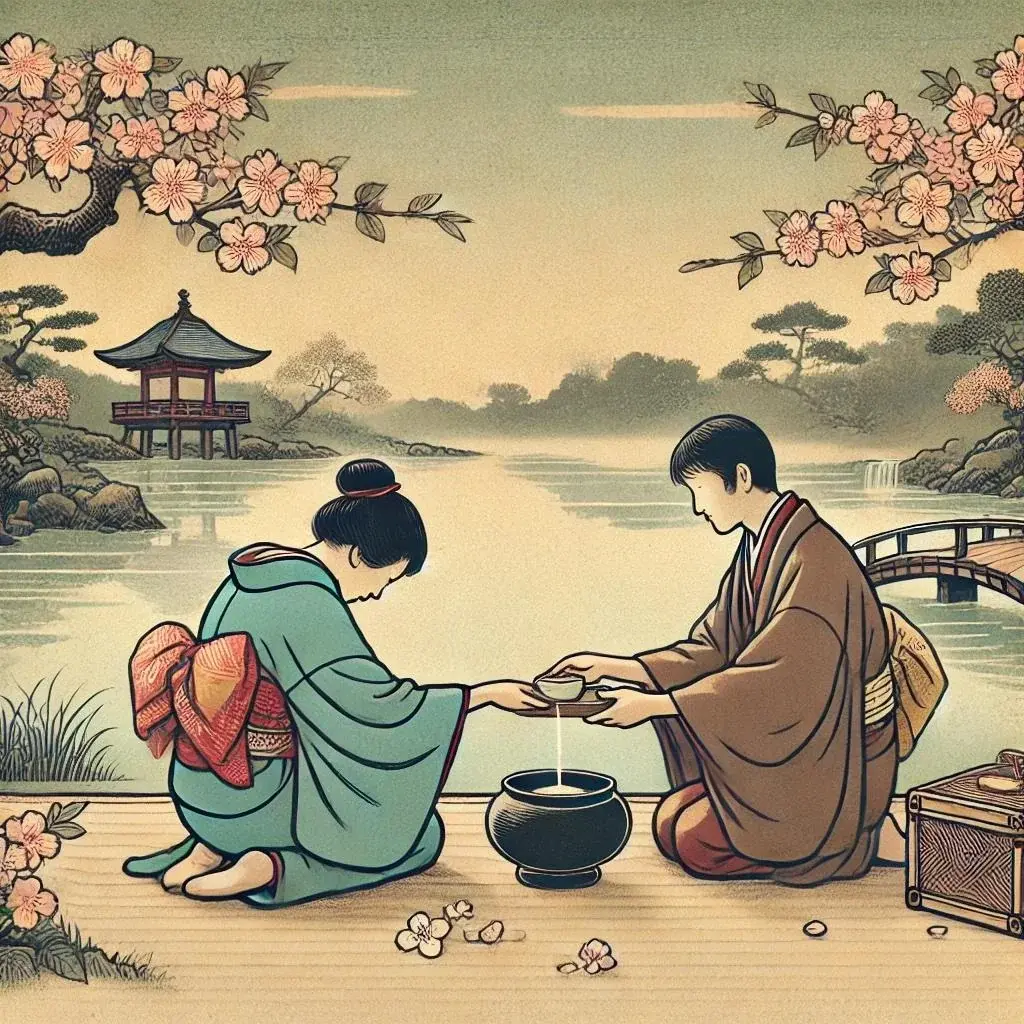
Bhikkhus, when release of mind by loving-kindness is practiced, developed, made much of, used as a vehicle and as a basis, established, consolidated, and properly undertaken, eleven benefits can be expected.
Which eleven?
-
One sleeps with ease,
-
One wakes up with ease,
-
One does not see evil dreams,
-
One is dear to human beings,
-
One is dear to non-human beings,
-
Deities protect one,
-
Fire, poison, and weapons cannot harm one,
-
One's mind becomes collected quickly,
-
One's facial complexion becomes clear,
-
One dies unconfused, and
-
If one does not penetrate further, one goes to the Brahma world.
Bhikkhus, when release of mind by loving-kindness is practiced, developed, made much of, used as a vehicle and as a basis, established, consolidated, and properly undertaken, these eleven benefits can be expected.
---------
Related Teachings:
The Mind of Loving-Kindness (MN 21) - A discourse full of vibrant and memorable similes, on the importance of patience and love even when faced with abuse and criticism. The Buddha finishes with the simile of the saw, one of the most memorable similes found in the discourses.
Verses on Loving-Kindness | Metta Sutta (Snp 1.8) - This Metta Sutta offers a practical way to overcome any negative states of mind and root them in contentment, good-will and harmlessness.
-
-
Seven things that lead to decline (AN 7.28)
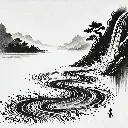
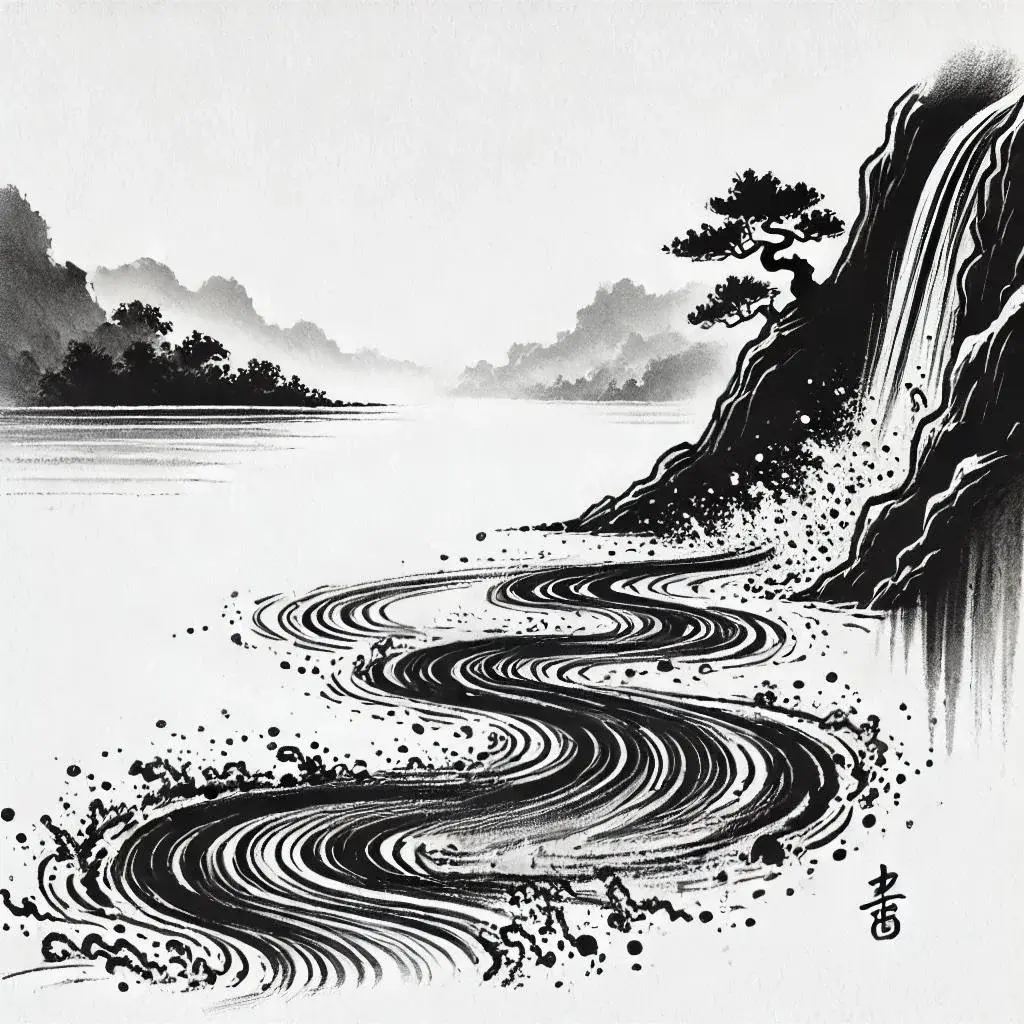
At one time, the Blessed One was dwelling at Sāvatthi, in Jeta's Grove, Anāthapiṇḍika's Park. There, the Blessed One addressed the bhikkhus:
"Bhikkhus, there are these seven qualities that lead to the decline of a trainee bhikkhu. What seven?
Relishing work, relishing talk, relishing sleep, relishing pleasure of company, being unguarded in sense faculties, lack of moderation in eating, and moreover there are communal duties. There, a trainee reflects, 'There are elders in the Saṅgha who are experienced, long gone forth, bearing the burden; they will be recognized for this.' Yet, he still engages in these duties himself. These seven qualities lead to the decline of a trainee bhikkhu.Bhikkhus, there are these seven qualities that lead to the non-decline of a trainee bhikkhu. What seven?
Not relishing work, not relishing talk, not relishing sleep, not relishing pleasure of company, being guarded in sense faculties, having moderation in eating, and moreover, there are communal duties. There, a trainee reflects, 'There are elders in the Saṅgha who are experienced, long gone forth, bearing the burden; they will be recognized for this.' Therefore, he does not engage in these duties himself. These seven qualities lead to the non-decline of a trainee bhikkhu."
----------
The words relish and pleasure and immoderation are pointing to indulging in an activity with passion/craving/desire/attachment. When one does this, one is unable to train and progress per the training guidelines that the Buddha shares.
Related Teachings:
Gradual training, gradual practice and gradual progress (MN 107) - The gradual training guideline teaching of the Buddha is how a student starting out in the teachings of the Buddha should gradually practice in to see gradual progress.
Fear arises from harm (Snp 4.15) - The Buddha shares in poignant terms his observations on the agitation all beings experience which led to his urgency to awaken. He then shares on the path to awakening and describes the dwelling of an awakened being.
-
Upon Awakening (Ud 1.1)


Thus have I heard — at one time, the Blessed One was dwelling in Uruvelā on the bank of the river Nerañjarā at the root of the Bodhi tree, having just attained full awakening.
Then, for seven days, the Blessed One sat in one posture experiencing the bliss of liberation. At the end of those seven days, the Blessed One, emerging from that stillness of mind, during the first watch of the night, thoroughly paid attention to dependent origination in forward order:
"This being, that becomes; from the arising of this, that arises. That is: from ignorance as a condition, formations arise; from formations as a condition, consciousness arises; from consciousness as a condition, name-and-form arises; from name-and-form as a condition, the six sense bases arise; from the six sense bases as a condition, contact arises; from contact as a condition, feeling arises; from feeling as a condition, craving arises; from craving as a condition, clinging arises; from clinging as a condition, continued existence comes to be; from continued existence as a condition, birth comes to be; from birth as a condition, aging and death, sorrow, lamentation, pain, displeasure, and despair come to be. Thus is the arising of this whole mass of suffering."
Knowing this, the Blessed One at that time expressed this inspired utterance:
> "When phenomena become evident,
> To the Brahmin meditating with continuous effort;
> All his doubts are dispelled,
> When he knows a phenomena with its cause."
--------
Related Teachings:
The Stableness of the Dhamma (SN 12.20) - The Buddha is sharing the uncertainty of a Buddha having arisen and his teaching shining in the world. While dependent origination would continue regardless, in such a case, beings would not be able to able to attain enlightenment and continue wandering on in samsāra.
Proximate Causes | Links of Dependent Origination (SN 12.23) - This teaching outlines the sequential progression of spiritual development, starting from ignorance and leading to the ultimate knowledge of cessation, emphasizing the causal relationships between factors like faith, joy, and concentration, leading to enlightenment.
-
On Wise Attention | A Trainee - First (ITI 16)


Thus was it said by the Blessed One, said by the Arahant, as I have heard:
"Bhikkhus, for a trainee bhikkhu whose mind has not yet attained the unsurpassed security from bondage, who is dwelling and aspiring for it, I do not see any other single factor as so helpful as wise attention. Bhikkhus, a bhikkhu attending wisely abandons the unwholesome and develops the wholesome."
The Blessed One spoke this matter. Therefore it is said thus:
> "Wise attention is the quality of a trainee bhikkhu; No other factor is as helpful, for attaining the highest goal; The bhikkhu who strives wisely, reaches the end of suffering."
This matter too was spoken by the Blessed One, thus have I heard.
------
One can reflect to see the difference in how one attends to similar situations when the mind is shaken up in contrast to when the mind is steady, stable, unperturbed.
Wise attention or proper and careful attention is a quality of the mind that comes to growth and maturity as one continues learning, reflecting and applying the teachings in practice. It is one of the four factors that leads one to awakening to the truth of enlightenment, to stream-entry.
**Related Teachings:**s
Teachings on the harmful and beneficial qualities (AN) - In this teaching on contrasting pairs, the Buddha shares that harmful qualities when pursued, lead to one's decline in morality, generosity, faith, concentration, and wisdom. In contrast, the beneficial qualities when pursued, cultivated, and developed, lead to one's growth in morality, generosity, faith, concentration and wisdom.
What is the stream and who is a stream-enterer (SN 55.5) - A dialogue between the Buddha and Sāriputta on the four factors for stream-entry: 1.) association with good people, 2.) hearing the true teaching, 3.) wise attention, and 4.) practice in accordance with the teaching. Sāriputta also defines the "stream" and the "stream-enterer" and the Buddha approves of his answer.
-
Studying With The Buddha's Words


> More than two thousand five hundred years have passed since our kind teacher, Buddha Śākyamuni, taught in India. He offered advice to all who wished to heed it, inviting them to listen, reflect, and critically examine what he had to say. He addressed different individuals and groups of people over a period of more than forty years.
> After the Buddha's passing, a record of what he said was maintained as an oral tradition. Those who heard the teachings would periodically meet with others for communal recitations of what they had heard and memorized. In due course, these recitations from memory were written down, laying the basis for all subsequent Buddhist literature. The Pāli Canon is one of the earliest of these written records and the only complete early version that has survived intact. Within the Pāli Canon, the texts known as the Nikāyas have the special value of being a single cohesive collection of the Buddha's teachings in his own words. These teachings cover a wide range of topics; they deal not only with renunciation and liberation, but also with the proper relations between husbands and wives, the management of the household, and the way countries should be governed. They explain the path of spiritual development—from generosity and ethics, through mind training and the realization of wisdom, all the way up to the attainment of liberation.
— Venerable Tenzin Gyatso, the Fourteenth Dalai Lama's forward to In the Buddha's Words
> The Buddha’s discourses preserved in the Pāli Canon are called suttas, the Pāli equivalent of the Sanskrit word sūtras. Although the Pāli Canon belongs to a particular Buddhist school—the Theravāda, or School of the Elders—the suttas are by no means exclusively Theravāda Buddhist texts. They stem from the earliest period of Buddhist literary history, a period lasting roughly a hundred years after the Buddha’s death, before the original Buddhist community divided into different schools. The Pāli suttas have counterparts from other early Buddhist schools now extinct, texts sometimes strikingly similar to the Pāli version, differing mainly in settings and arrangements but not in points of doctrine. The suttas, along with their counterparts, thus constitute the most ancient records of the Buddha’s teachings available to us; they are the closest we can come to what the historical Buddha Gotama himself actually taught. The teachings found in them have served as the fountainhead, the primal source, for all the evolving streams of Buddhist doctrine and practice through the centuries. For this reason, they constitute the common heritage of the entire Buddhist tradition, and Buddhists of all schools who wish to understand the taproot of Buddhism should make a close and careful study of them a priority.
— Bhikkhu Bodhi in In the Buddha's Words
> "AT PRESENT, ALL THAT IS LEFT of Buddhism are the words of the Buddha."
— Venerable Ācariya Mahā Boowa in Arahattamagga ArahattaPhala
> "Therefore, Ānanda, dwell with yourselves as your own island, with yourselves as your own refuge, with no other refuge; dwell with the Dhamma as your island, with the Dhamma as your refuge, with no other refuge.
> Whoever, Ānanda, now or after my passing, dwells as an island unto themselves, with themselves as their own refuge, not dependent on another as a refuge; with the Dhamma as their island, with the Dhamma as their refuge, not dependent on another as a refuge; they, Ānanda, will be the foremost of those who are keen on the training."
— The Buddha's advise to Ānanda in Cundasutta SN 47.13
> "Please, venerable sir, teach me the Dhamma in brief, so that having heard the Dhamma from the Blessed One, I might dwell alone, diligent, ardent, and resolute."
> "Gotamī, you should know the Dhamma to be abandoned if you find:
> 1. 'These teachings lead to passion, not to dispassion;
> 2. to being bound, not to being unbound;
> 3. to accumulating, not to shedding;
> 4. to wanting more, not to wanting less;
> 5. to discontentment, not to contentment;
> 6. to company, not to solitude; to laziness,
> 7. not to the arousal of energy (decline in application of right effort);
> 8. to being burdensome, not to being unburdensome.'
> In this way, Gotamī, you should conclude: 'This is not the Dhamma, this is not the Vinaya, this is not the Teacher's instruction.'
> And, Gotamī, you should know the Dhamma to be embraced if you find:
> 1. 'These teachings lead to dispassion, not to passion;
> 2. to being unbound, not to being bound;
> 3. to shedding, not to accumulating;
> 4. to wanting less, not to wanting more;
> 5. to contentment, not to discontentment;
> 6. to solitude, not to company;
> 7. to the arousal of energy, not to laziness (growth in application of right effort);
> 8. to being unburdensome, not to being burdensome.'
> In this way, Gotamī, you should conclude: 'This is the Dhamma, this is the Vinaya, this is the Teacher's instruction.'"
— The Buddha's advise to Mahāpajāpatī Gotamī in Saṁkhittasutta AN 8.53
One doesn't need a belief or faith in the Buddha's teachings to benefit from them. Rather, one can harness any skepticism by developing an inquisitive mind, to diligently learn, reflect, and then independently verify the teachings by applying them in practice for a period of time, observing for:
-
development and growth in the mental qualities associated with enlightenment such as mindfulness, persistence, joy, tranquility, collectedness; and
-
improvements in one's personal and professional relationships.
-
-
Intro and Current Area of Practice


You're welcome to introduce yourself and state your current area of practise.
This is how the Buddha advised his students to reflect on their practise:
At one time, the Blessed One was residing in Sāvatthi, in Jeta's Grove, Anāthapiṇḍika's Park. There, the Blessed One addressed the bhikkhus: "Bhikkhus."
"Blessed One," those bhikkhus responded to the Blessed One. The Blessed One said:
"If, bhikkhus, a bhikkhu is not skilled in the ways of others' minds, then he should train thus: ‘I will become skilled in the way of my own mind’—indeed, bhikkhus, this is how you should train.
And how, bhikkhus, does a bhikkhu become skilled in the way of his own mind? Suppose, bhikkhus, a man or a woman, young, of a youthful appearance, fond of adornment, would look at their own reflection in a very clear and bright mirror or in a bowl of clear water. If there, they see any dirt or blemish on their face, they would strive to remove that dirt or blemish. If they do not see any dirt or blemish there, they would be satisfied, feeling complete and thinking: ‘It is a gain for me, it is excellent for me.’ Similarly, bhikkhus, for a bhikkhu, reflection is very helpful for wholesome states: ‘Am I often covetous or not? Am I often with ill-will or not? Am I often overcome by dullness (complacency) or not? Am I often restless or not? Am I often in doubt or not? Am I often angry or not? Am I often with a defiled mind or not? Am I often with an energetic body or not? Am I often lazy or not? Am I often uncollected or collected in mind?’
If, upon reflection, bhikkhus, a bhikkhu knows: ‘I often live with covetousness, with ill-will, overcome by dullness (complacency), restless, in doubt, angry, with a defiled mind, with an energetic body, lazy, uncollected in mind,’ then, bhikkhus, that bhikkhu should make a strong desire, effort, enthusiasm, energy, and determination to abandon those very evil, unwholesome states. Just as if one's clothes or head were on fire, one would make a strong desire, effort, enthusiasm, energy, and determination to extinguish that fire on one's clothes or head. In the same way, that bhikkhu should make a strong desire, effort, enthusiasm, energy, and determination to abandon those very evil, unwholesome states.
However, if upon reflection, bhikkhus, a bhikkhu knows: ‘I often live without covetousness, without ill-will, not overcome by dullness (complacency), not restless, beyond doubt, not angry, with an undefiled mind, with an energetic body, energetic, collected in mind,’ then, bhikkhus, that bhikkhu, established in those very wholesome states, should practice for the further destruction of the taints."
-- AN 10.51
-
Four bad and good conducts by way of speech (AN 4.221)

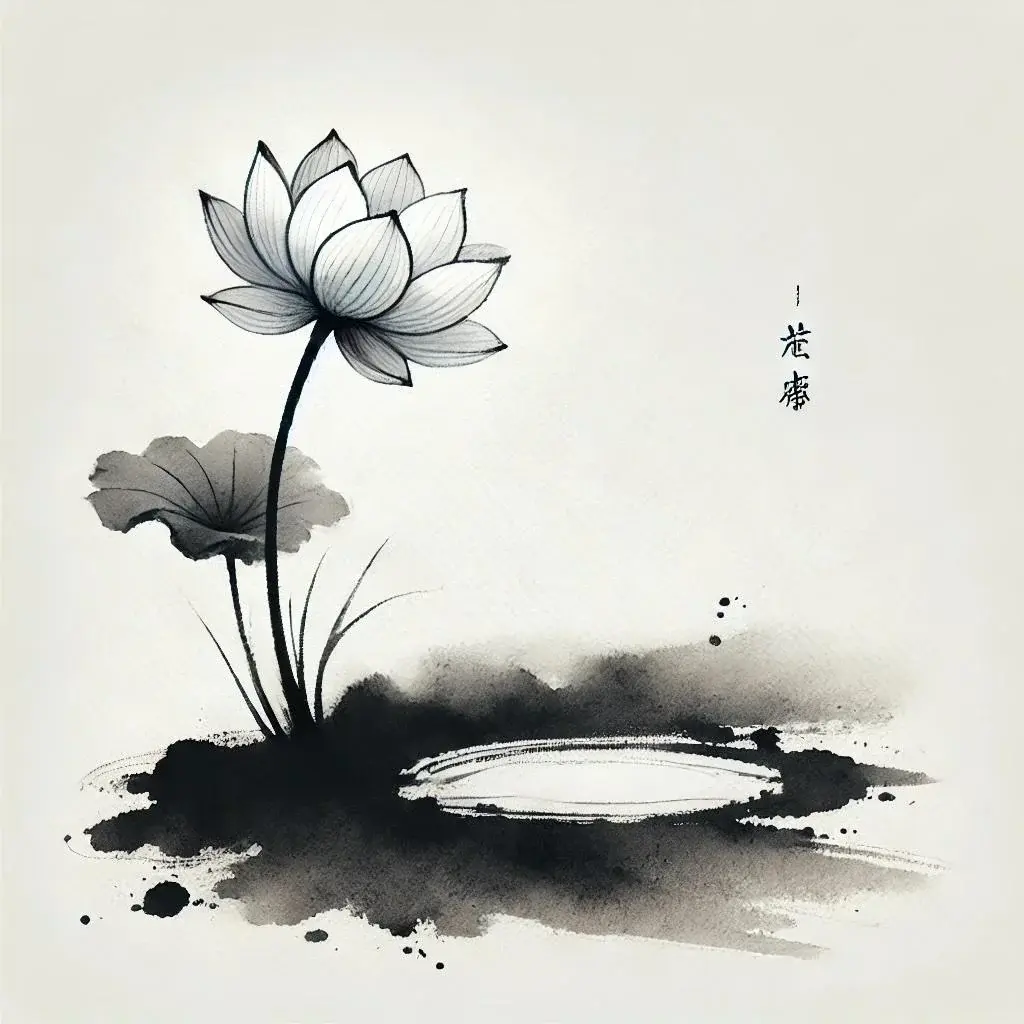
"Bhikkhus, these are the four misconducts by way of speech. What are the four? False speech, divisive speech, harsh speech, and idle chatter — these are the four misconducts by way of speech.
Bhikkhus, these are the four good conducts by way of speech. What are the four? Truthful speech, speech that is not divisive (promoting harmony), gentle speech, and thoughtful speech — these are the four good conducts by way of speech."
------
Related Teachings:
Five factors of well-spoken speech (AN 5.198) - The Buddha shares on the five factors of well-spoken speech
Guarding against irritability in body, speech, thought (DhP 231, 232, 233, 234) - The Buddha is advising against getting irritated, for bad conduct by way of body, speech or thoughts fuels the fetter of ignorance.
-
The Obsession of the Mind (AN 1.1-10)

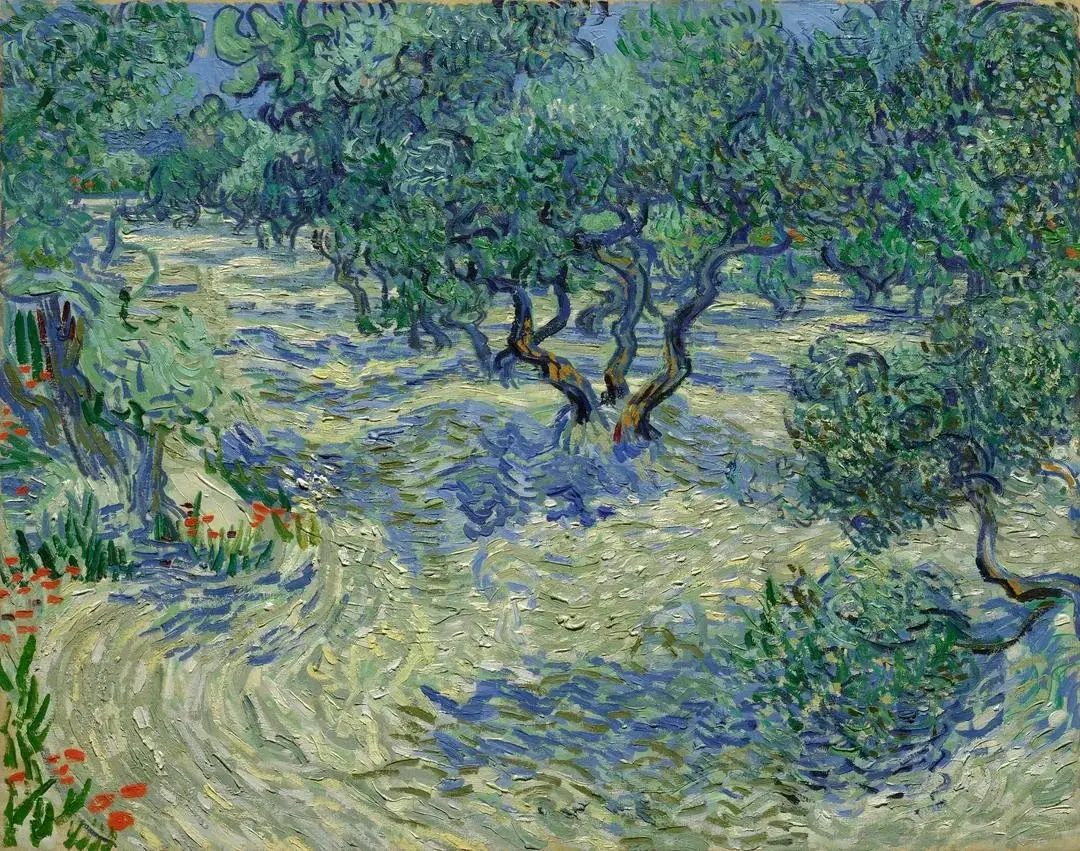
Thus have I heard - At one time the Blessed One was dwelling at Sāvatthī, in the Jeta's Grove, Anāthapiṇḍika's park. There, the Blessed One addressed the bhikkhus: "Bhikkhus."
"Venerable Sir," those bhikkhus replied to the Blessed One. The Blessed One said this:
"I do not see any other form, bhikkhus, that so completely obsesses a man's mind as the form of a woman. The form of a woman, bhikkhus, obsesses a man's mind."
-- AN 1.1
"I do not see any other sound, bhikkhus, that so completely obsesses a man's mind as the sound of a woman. The sound of a woman, bhikkhus, obsesses a man's mind."
-- AN 1.2
"I do not see any other scent, bhikkhus, that so completely obsesses a man's mind as the scent of a woman. The scent of a woman, bhikkhus, obsesses a man's mind."
-- AN 1.3
"I do not see any other taste, bhikkhus, that so completely obsesses a man's mind as the taste of a woman. The taste of a woman, bhikkhus, obsesses a man's mind."
-- AN 1.4
"I do not see any other touch, bhikkhus, that so completely obsesses a man's mind as the touch of a woman. The touch of a woman, bhikkhus, obsesses a man's mind."
-- AN 1.5
"I do not see any other form, bhikkhus, that so completely obsesses a woman's mind as the form of a man. The form of a man, bhikkhus, obsesses a woman's mind."
-- AN 1.6
"I do not see any other sound, bhikkhus, that so completely obsesses a woman's mind as the sound of a man. The sound of a man, bhikkhus, obsesses a woman's mind."
-- AN 1.7
"I do not see any other scent, bhikkhus, that so completely obsesses a woman's mind as the scent of a man. The scent of a man, bhikkhus, obsesses a woman's mind."
-- AN 1.8
"I do not see any other taste, bhikkhus, that so completely obsesses a woman's mind as the taste of a man. The taste of a man, bhikkhus, obsesses a woman's mind."
-- AN 1.9
"I do not see any other touch, bhikkhus, that so completely obsesses a woman's mind as the touch of a man. The touch of a man, bhikkhus, obsesses a woman's mind."
-- AN 1.10
-------
Related Teachings
Sensuality is subject to time, of much stress (SN 1.20) - A deity tries to persuade a monk to first enjoy sensual pleasures and then go forth.
The Fever of Sensual Pleasures (from MN 75) - Accused by a hedonist of being too negative, the Buddha recounts the luxury of his upbringing, and his realization of how little value there was in such things. Through renunciation he found a far greater pleasure.
The well-composed Mind (AN 9.26) - Venerable Sāriputta clarifies on a teaching on how enlightenment is to be verified. He shares a visual simile of the stone pillar.
-
Possessions, Respect and Popularity | Fishing Hook (SN 17.2)


At Sāvatthi.
"Bhikkhus, possessions, respect, and popularity are painful, severe, and obstructive to the attainment of the unsurpassed safety from the yoke (freedom from bondage).
Just as, bhikkhus, a fisherman would throw a baited hook into a deep pool of water. A certain fish, with eyes only for the bait, would swallow it. Indeed, bhikkhus, that fish swallowing the hook has fallen into disaster and calamity and is to be dealt with as the fisherman wishes.
Bhikkhus, the term 'fisherman' is a designation for Māra the evil one. The term 'hook' is a designation for possessions, respect, and popularity. Any bhikkhu who relishes and longs for arisen possessions, respect, and popularity is called a bhikkhu who swallows the hook, who has fallen into disaster and calamity, and is to be dealt with as Māra the evil one wishes.
Thus, bhikkhus, possessions, respect, and popularity are painful, severe, and obstructive to the attainment of the unsurpassed safety from the yoke.
Therefore, bhikkhus, you should train yourselves thus: 'We will abandon arisen possessions, respect, and popularity, and arisen possessions, respect, and popularity will not occupy our minds.' Thus indeed, bhikkhus, should you train yourselves."
------
Related Teachings:
Acquire a possession which is permanent (from MN 22) - The Buddha shares to the bhikkhus that they could acquire a possession which is permanent, stable, of unchanging nature; or they could hold on to a self-view that doesn't cause any sorrow, displeasure and despair when holding on it.
Steadying the mind against the poisons of greed, hate and delusion (AN 4.117) - The Buddha's teachings when practiced become a support for the mind, allowing it to remain steady in situations that once used to shake it up.